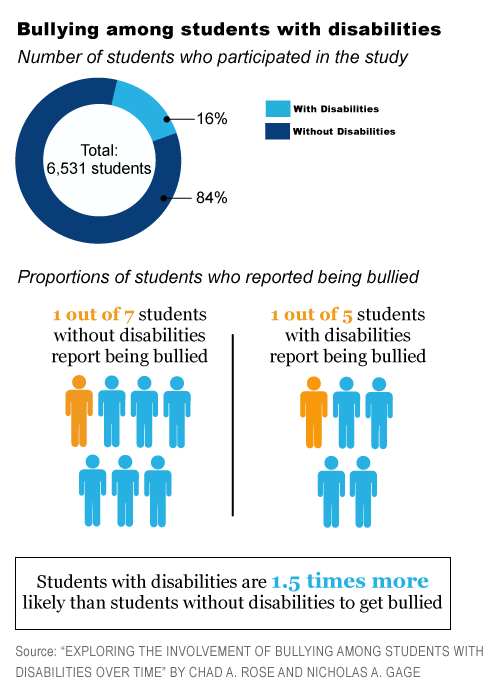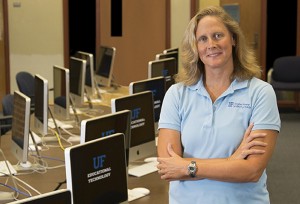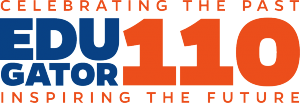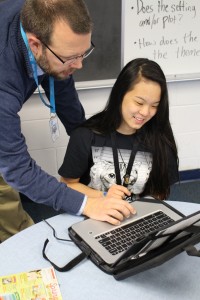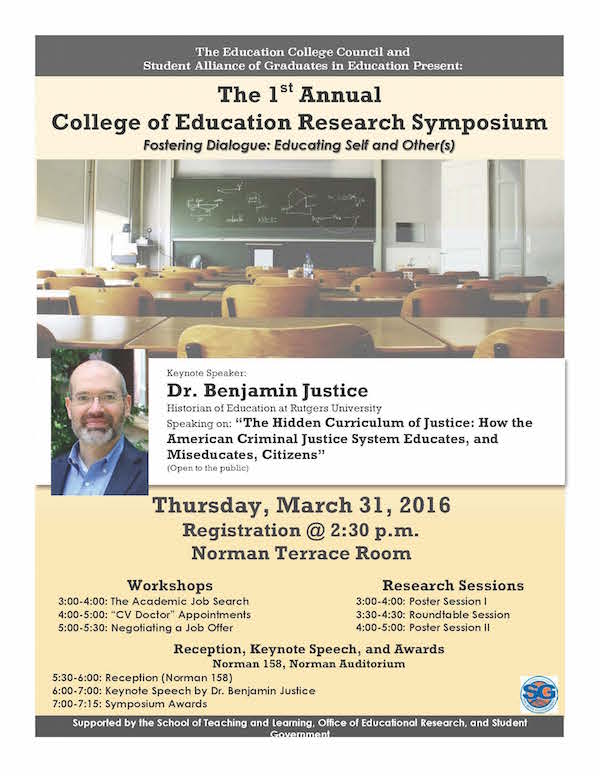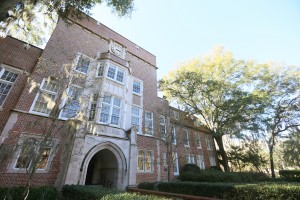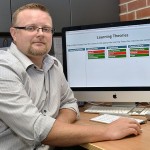Education Scholar Newest Member of Elite Group of UF Professors
/by labellebrittanyHow does stress affect middle schoolers with emotional and behavioral problems?
/by labellebrittanyCOE makes its mark at nation’s largest gathering of education researchers
/by labellebrittanyAward-Winning Research May Help Boost Reliability of Standardized Tests
/by labellebrittanyCounselor Ed Scholars Win Intl. Awards for Research, Practice and Communications
/by labellebrittanyHundreds Gather at UF’s International Conference on ‘Teacher Leaders’
/by labellebrittanyFive Questions for EduGator Larry Feldman, Board Chair of Miami-Dade Public Schools
/by labellebrittanyUF Grad’s Newest Leadership Role: Chair of Florida’s Largest School District
/by labellebrittanyUF, COE, state mourn loss of ‘rising star’ alumnus Brian Dassler
/by labellebrittanyCollege again earns top rankings from US News
/by labellebrittanyHigher Ed. institute honors 10 outstanding alumni
/by labellebrittanyUF Grads Dominate School District Teacher of the Year Awards
/by labellebrittanyPhD scholar designs community workshops to help preschoolers, English language learners
/by labellebrittanyPK Yonge School’s Tony-winning musical tackles social justice issues with 1920s tunes, laughter
/by labellebrittanyInternational Teacher Leadership Conference set for March 2-3
/by labellebrittanyUF College of Education Garners Another Top 10 Ranking
/by labellebrittanyCOE repeats No. 1 ranking in US for online graduate degrees
/by labellebrittanyCOE repeats No. 1 ranking in US for online graduate degrees
U.S. News and World Report rated the distance education program at the University of Florida College of Education as America’s best online graduate education degree program for the second consecutive year.
COE scholar: Students with disabilities more involved in bullying over time
Research by education scholars has shown that students with disabilities are generally more likely to be victimized and to perpetrate bullying than other students.
But few studies have examined whether this discrepancy in bullying behavior changed over time as students advanced through grades.
Now a new study co-authored by UF College of Education scholar Nicholas Gage has found that the students with disabilities in the third through 12th grades are consistently more involved in bullying than other students.
“We were not surprised there was a gap in bullying, but our most notable finding was that this gap remained the same over time,” said Gage, UF College of Education assistant professor of special education.
Disproportionate bullying
Generally, as students progress in age, the level of bullying declines across all groups of students. But students with disabilities consistently are more likely involved in bullying.
For example, 44 percent of third-grade students reported some level of bullying, Gage said. In contrast, the rate was 66 percent among third-graders with a disability. In fifth grade, 40 percent of these same students reported bullying while 60 percent of students with disabilities said they were bullied or engaged in bullying. Overall, 21.8 percent of students with disabilities were bullied versus 14.5 percent of students without disabilities.
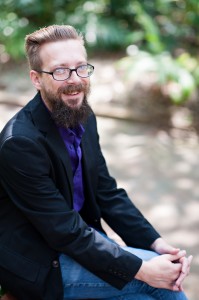
UF College of Education Assistant Professor Nicholas Gage.
Gage co-authored with Chad A. Rose, professor of education at the University of Missouri, the study, “Exploring the Involvement of Bullying Among Students with Disabilities over Time,” which is published in the academic journal Exceptional Children.
The scholars evaluated the victimization and perpetration rates of 6,531 students in a school district in Connecticut; Gage did post-doctorate work at the University of Connecticut’s Institute of Education Science. Gage and Rose analyzed the responses third through twelfth graders provided in a survey of bullying over a three-year period.
Bullying defined
The scholars used a generally accepted definition of bullying as pervasive peer aggression with the intention to cause physical or emotional harm.
Roughly 16 percent of the students surveyed had a disability. These disabilities included: autism spectrum disorder, emotional disturbance, learning disabilities, attention deficit hyperactivity disorder and other health impairments. These students were integrated into general classrooms.
Previous studies on the victimization of students with disabilities reported increased verbal abuse (e.g., name-calling, mimicking disability characteristics, teasing), social exclusion, and physical aggression when compared with nondisabled peers. Scholars have said one serious concern is that over time victimized students may develop aggressive characteristics as a strategy to combat the victimization.
Gage said that students with disabilities are less likely to have the social and communication skills to avoid bullying.
As a result, Gage says schools need to increase their efforts to build an awareness, increase teacher training and develop ways to combat bullying in the education plans of students with disabilities.
“Kids with disabilities may need some bullying intervention to recognize and also develop social skills to prevent bullying,” Gage said. “And schools and teachers need to develop more proactive approaches around bullying, particularly for kids with disabilities. It’s about working with schools and teachers to develop competency and social skills that can have a positive impact.”
Source: Nicholas Gage, 352-273-4282
Writer: Charles Boisseau, 352-273-4449
Giving Reading a Boost
UF will bring its Winning Reading Boost program to more Florida elementary schools
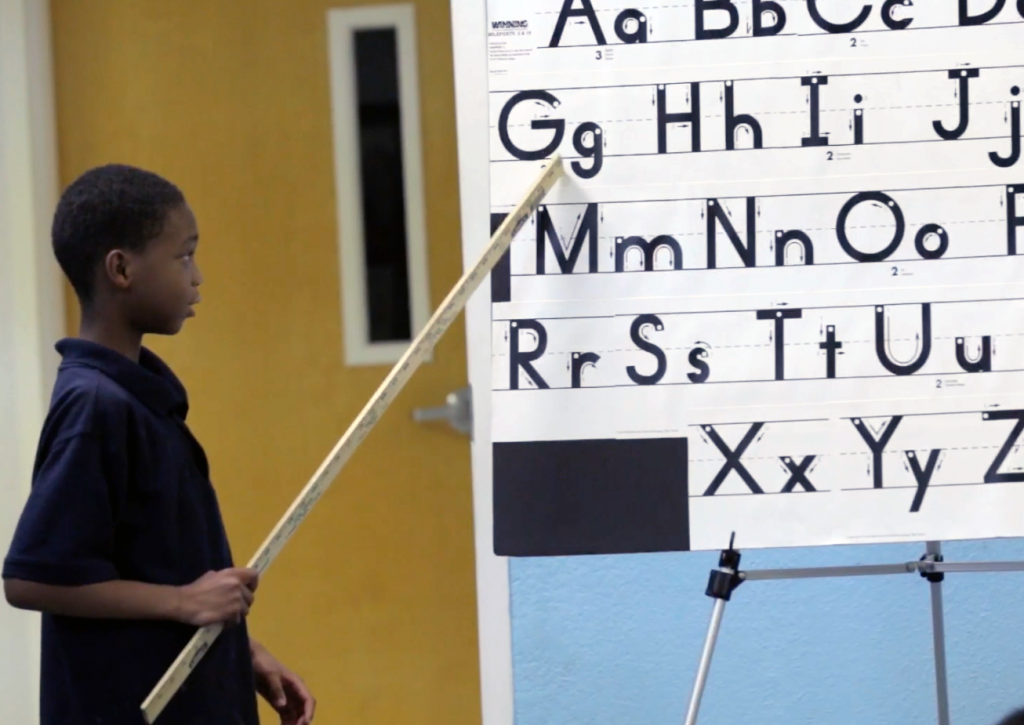
Watch Video
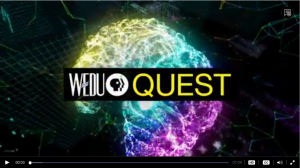 See a segment on Winning Reading Boost that recently aired on “Quest,” a program from WEDU-TV in Tampa.
See a segment on Winning Reading Boost that recently aired on “Quest,” a program from WEDU-TV in Tampa.
The University of Florida College of Education is extending the reach of an innovative program that uses phonics, rap music and other techniques to help struggling elementary students to learn to read.
In January, UF will bring its Winning Reading Boost program to four more Florida elementary schools and UF educators also are planning to roll out an improved learning-to-read model next summer.
Partnering with the college starting next semester are Rawlings and Alachua elementary schools in Alachua County and Fairmount Park Elementary and Midtown Academy in Pinellas County. They will join Lakewood Elementary in St. Petersburg, which launched the program last fall.
The college’s Lastinger Center for Learning is expanding Winning Reading Boost after it received a $400,000 grant in March 2016 from the Florida Legislature to help third- through fifth-graders who have not yet learned to read. The Lastinger Center serves as the College of Education’s teaching and learning innovation incubator.
Pilot study gets results
A recent UF pilot study showed that every student participating in a 90-day Reading Winning Boost after-school program in St. Petersburg improved their language decoding skills and reading fluency by at least 75 percent.
“The thing I’m most excited about is the program seems designed to fill in the gaps for children who are struggling to read,” said Eva Copeland, principal of Alachua Elementary. The school has targeted about 20 third graders and five fifth graders for the program who are in danger of falling behind because they cannot read.
The importance of learning to read has received increased attention in recent years. Researchers have found that if children fail to develop basic reading skills during the first few years of school they suffer not only academic problems but also economic and social-emotional difficulties. One in six students who cannot read proficiently by the third grade will not graduate from high school.
“The danger is in second grade students are learning to read and once they are in third grade they are reading to learn,” Copeland said. “If they are still struggling to read in third grade it makes the rest so much more difficult.”
Founder of the program
Winning Reading Boost traces its roots to an award-winning schoolteacher, Sue Dickson, who created the curriculum a generation ago at a time educators were abandoning teaching phonics for “sight reading,” or having students memorize words by sight. Dickson stuck with phonics and found success composing songs on the piano as a way of having dyslexic and other slow-to-read students to sound out words. In 2000, she sold the rights to her books and unique 36-step curriculum to an education book publisher. But when the rights lapsed, Dickson, who now lives in Safety Harbor, Florida, reclaimed them and partnered with researchers at the Lastinger Center to expand and improve the program, including updating workbooks with all-new contemporary images.
Shaunté Duggins, an early literacy and teacher development consultant for the Lastinger Center, said an important reason students improve their reading skills through Winning Reading Boost is they remember more information when rap, contemporary, jazz and other types of music are used.
“It makes reading fun, “ she said. “And by getting students engaged using proven learning-to-read methods they can make dramatic progress.”
Watch a segment on Winning Reading Boost that recently aired on “Quest,” a program from WEDU-TV in Tampa: http://video.wedu.org/video/2365857129.
Sources:
Shaunté Duggins, shaunte@coe.ufl.edu, 352-273-3654
Sue Dickson, SDSTTeach@outlook.com, 727-799-9825
Eva Copeland, copelaem@gm.sbac.edu, 386-462-1841
Writer: Charles Boisseau, UF College of Education, 352-273-4449
Counselor Ed. volunteers reflect on Orlando Pulse nightclub tragedy
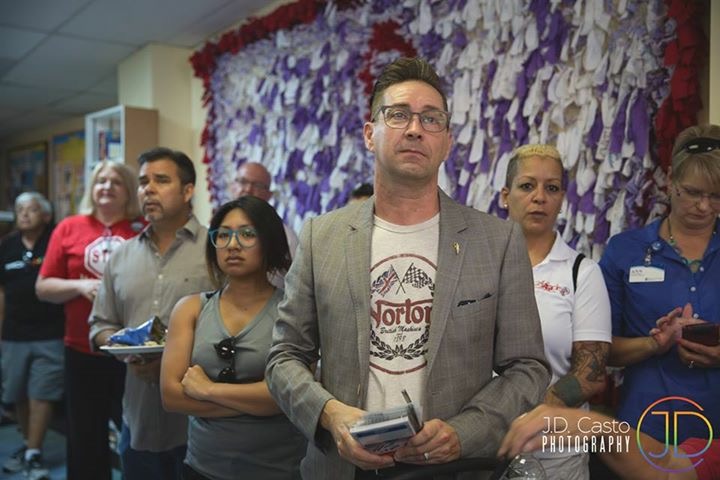
John Super (center) watches the news with other volunteers in the LGBT Center in Orlando after the Pulse nightclub shooting.
Several months have passed since a gunman killed 49 people and wounded 53 at the Pulse nightclub in Orlando in what was the deadliest mass shooting in U.S. history — a horrific tragedy the likes of which rarely strikes so close to the University of Florida.
While the trauma of the lives lost will long linger in the minds of survivors, family and friends of the victims, the aftermath also has brought the Orlando community together in a cause for hope and unity. Citizens donated blood, stood together on social media and held vigils.
They were supported by sympathizers across Florida and the country, including a contingent of students and faculty members from UF College of Education who personally visited Orlando to assist in the communitywide effort to provide counseling and mental health care to those affected by the deadly shooting.
“This event had a huge impact on me as a counselor, a student and a person,” said Rachel Henesy, a UF doctoral student in counselor education. “On a personal and professional level, I felt a responsibility to help in any way possible.”
About 30 UF volunteers
The UF effort was spearheaded by John Super, a clinical assistant professor of counselor education, who in the days after the tragedy helped recruit and organize about 30 UF counselors and students to travel to Orlando for one-on-one counseling sessions. They helped people coping with intense feelings — such as loss, anger and fear, provided referrals to local licensed therapists and served as an emotional outlet for those experiencing their darkest days.
It has been said that out of deep pain and grief there is hope and opportunity. That is what Super found when he asked his UF students and peers from around the state to contribute to the volunteer counseling efforts.
“In the beginning, there was a moment where I thought I could either volunteer or not,” Super said. “But I knew I had to do something, and at that moment I had no idea the magnitude the tragedy would become.”
Super worked with local volunteer counseling coordinators, including David Baker-Hargrove and Lindsay Kincaide of Two Spirit Health Services in Orlando, to develop a response plan. He also coordinated with Alicia Homrich, a professor of graduate studies in counseling at Rollins College in Winter Park, who provided resources and also recruited Rollins students, Kincaide said.
The Lesbian, Gay, Bisexual, Transgender Community Center of Central Florida served as the base of operations, with other free counseling locations established throughout the Orlando area, including LGBT-friendly bars. All told, nearly 700 people — ranging from licensed counselors, psychologists, pet therapists, interpreters and social workers — volunteered their time in the days and weeks following the shooting to assist hundreds of people from June 12 to July 4, Kincaide said.
Ties to the LGBT community
Super was well equipped to help with the grassroots counseling efforts. He has master’s in marriage and family therapy and a Ph.D. in counselor education from the University of Central Florida in Orlando, and has ties to Orlando’s LGBT Community Center. He also has Red Cross training in disaster response for mental health care and has conducted research in the identity development of LGBT individuals.
In the days after the tragedy, Super tapped his counseling connections, Orlando ties and experience in crisis intervention counseling to help address the widespread grief and fear of area residents — including a large contingent of the gay and Hispanic communities. He posted information on social media sites and sent emails to UF students and counselors asking for their help. Most not only were willing to volunteer but also shared his message to recruit others.
Though so many felt shock and heartbreak, Super said he witnessed a tremendous amount of goodness, too. He saw graduate students counsel those affected by the tragedy, and he encouraged conversation among the students to share their stories and feelings, and learn from each other’s experiences.
“I experienced such an outpouring from master’s and doctoral students who were willing to give their time and really put themselves out there driving from Gainesville to Orlando every day,” he said. “They put their own feelings and grief aside in order to help those who most needed it.”
Henesy, the UF doctoral student in counselor education, said she was grateful that Super was able to assess what was needed and get UF students and his peers involved.
Another counselor education doctoral student, Philip Daniels, said the College of Education gave him the foundation and confidence to provide the support needed for those processing the event.
“One of the first thoughts that went through my head was competency,” Daniels said. “I asked myself, ‘can I really do this?’ Then, it dawned on me. This is what I am trained for. This was a moment when everything I have learned came together so I could serve others in their time of need.”
Super said LGBT counseling has long been a staple of UF’s counseling education curriculum. Diversity and social justice is weaved into all of the counselor education courses, and LGBT issues are addressed through role-playing and discussions in every foundational class and clinical experience.
“Historically, we were one of the first several counselor education programs in the nation,” Super said. “We’ve always had a strong social justice focus that is supported by the college and our profession.”
Source: John Super, UF College of Education; 352-273-4325; jsuper@coe.ufl.edu
Writer: Kelsie Ozanne, news and communications office, UF College of Education; kozanne@ufl.edu
Media Relations: Larry Lansford, director, news and communications, UF College of Education; 352-273-4173; llansford@coe.ufl.edu
Athletes have coaches, why not teachers?
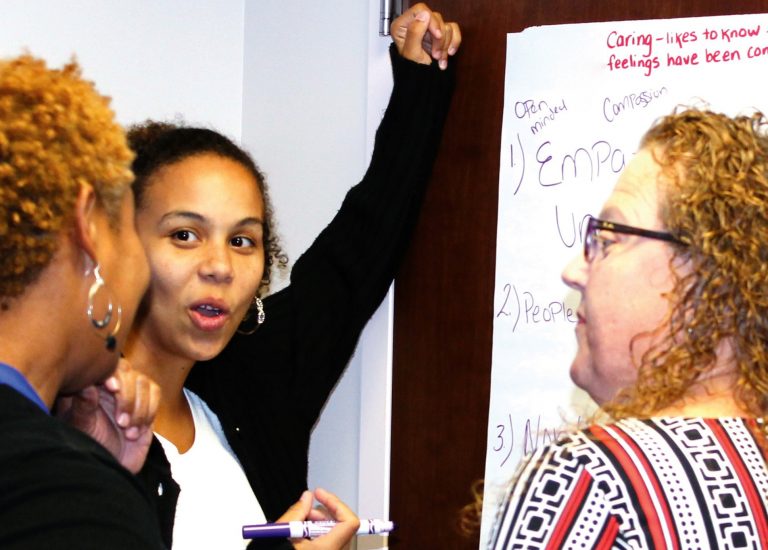
The Lastinger Center’s Coaching Academy has become a national leader in certifying teacher coaches in preschool through high school.
GAINESVILLE, Fla. — NFL quarterback Tom Brady has a coach. So does tennis superstar Serena Williams. Same goes for many of America’s most successful CEOs.
So why not teachers?
Scholars at the University of Florida’s College of Education and two nonprofit educational organizations are recommending just that: all teachers should have a skilled coach as a way to improve the nation’s educational system.
Research has shown that strong coaching can enhance a teacher’s practice and student learning — yet a majority of teachers say they don’t receive regular professional coaching, according to a new report from the UF Lastinger Center for Learning, developed jointly with the groups Learning Forward and Public Impact.
“Coaching is for everyone,” said Don Pemberton, director of the Lastinger Center, which serves as the college’s teaching and learning innovation incubator.
“There is kind of a stigma in education that coaches are only provided to the weak teachers,” Pemberton said. “In our work, we have reimagined coaching for all teachers. Anyone can gain value from it as they do in sports, and as CEOs do. We believe that should be the case in education. It’s really about human development.”
Only half of teachers receive coaching
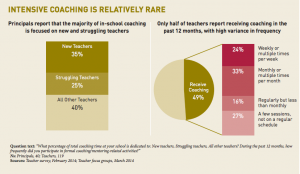
Nationwide, just half of teachers reported receiving coaching in a recent 12-month period, and only 12 percent had weekly coaching sessions, according to a 2014 survey funded by the Bill & Melinda Gates Foundation and cited by the researchers.
This new report, “Coaching for Impact: Six Pillars to Create Coaching Roles that Achieve Their Potential to Improve Teaching and Learning,” is aimed at schools and administrators nationwide in hopes of developing a framework and conversation about the importance of teacher coaches. The UF Lastinger Center teamed up on the research, writing and dissemination of the report with Learning Forward, a Dallas-based professional association for kindergarten-to-12th-grade teachers, and Public Impact, a Carrboro, N.C.-based organization working to improve learning for all U.S. children.
UF education professor emerita Dorene Ross served as project leader for the Lastinger Center.
Pemberton said the report comes at a time that schools across the country are spending tens of millions of dollars on implementing some form of coaching for teachers but these programs haven’t been fully conceptualized and developed to have the greatest impact.
“The question is how to get more value? It’s a field that is ready for some innovation,” Pemberton said.
The report serves as a roadmap for schools: It summarizes the findings of academic research, provides effective coaching models and makes recommendations for incorporating high-quality coaching in the daily routine at schools.
Six ‘pillars’ for coaching programs
The authors cite six “pillars” necessary to implement successful coaching programs:
- Commitment of education system leaders
- Careful selection of teacher coaches
- Shared responsibility for student outcomes by the coaches and the teachers they coach
- Clarification of roles, time allotted and culture
- Adequate training and support
- Improved compensation for coaches to attract and retrain great teachers in coaching positions
Pemberton and Ross acknowledged more study was needed about ways budget-constrained school districts can provide higher or “differentiated” pay to teacher coaches.
One step toward that goal is professionalizing the coaching field through formal certification programs. The Lastinger Center’s Coaching Academy has become a national leader in certifying teacher coaches in preschool through high school, with more than 1,500 coaches either certified or currently enrolled in the program.
It is working with seven Florida school districts(1), all 30 of Florida’s early learning coalitions, and the Charleston, S.C., school system to develop coaching programs, including specialty ones aimed at early childhood education, literacy and STEM (science, technology, engineering and math). The center also has contracted with the state of Georgia to develop a statewide designation for preschool coaching.
Ross said, “We think the more school districts invest in coaching the more they will realize how valuable coaching is, especially as coaches show they are truly improving the practice of teachers and, ultimately, student achievement.”
(1) NOTE: The seven Florida school districts working with the UF Lastinger Center’s teacher-coaching program are in Alachua, Duval, Indian River, Miami-Dade, Orange, Palm Beach and Seminole counties.
Source: Don Pemberton, 352-273-4100, UF Lastinger Center for Learning
Source: Dorene Ross, 352-538-1920, UF Lastinger Center for Learning
Writer: Charles Boisseau, UF College of Education news & communications office, 352-273-4449
UF awarded $3.5 million to help improve social, emotional behavior of schoolchildren

Ann Daunic, Stephen Smith, Nancy Corbett and James Algina
Ever since teachers have taught they have also had to manage the behavior of their students.
But in recent years primary grade teachers are reporting a spike in the number of young children who struggle to handle their emotions and regulate their behaviors – meaning more students have issues such as being unable to follow instructions, resorting to tantrums and arguing with peers.
Now, scholars from the University of Florida College of Education have begun research on a curriculum they hope will provide teachers and schools with new tools to improve the social and emotional “literacy” of the youngest schoolchildren.
The researchers recently received a $3.5 million federal grant to study the effectiveness of the Social-Emotional Learning Foundations (SELF) curriculum they developed through a previous pilot study.
Thousands of schoolchildren to participate
“If these children don’t receive some support during this critical time they could develop more serious and chronic behavioral problems that will interfere with their future school success.”
— Ann Daunic, principal investigator
Approximately 1,400 students in kindergarten and first grade at 60 urban and rural elementary schools in Florida will participate in the project following a screening process to select students at risk for emotional and behavioral problems. In this first year, 20 schools in five school districts have signed on – in Baker, Bradford, Levy, Marion and Putnam counties. Twenty more as-yet-identified schools will participate in each of the subsequent two years.
“If these children don’t receive some support during this critical time they could develop more serious and chronic behavioral problems that will interfere with their future school success,” said Ann Daunic, scholar emeritus at the UF College of Education and principal investigator on the project.
“As a matter of fact, researchers have determined that social-emotional development is closely linked to future academic performance,” she said.
Co-principal investigators on the project – also from the UF College of Education – are: Nancy Corbett, assistant scholar in special education, Stephen Smith, professor of special education, and James Algina, professor emeritus of research and evaluation methodology.
The four-year study is funded by the Institute of Education Sciences, the research arm of the U.S. Department of Education.
Daunic said research shows that about 10 percent of students who receive special education services have been diagnosed with emotional and behavioral disorders. But these students are not usually identified until they approach adolescence, particularly those who have internalizing problems such as anxiety and depression – which are more difficult for teachers to spot than externalizing behaviors such as class disruption, aggression or defiance.
Curriculum includes 50 lessons
The new UF study is designed to identify and help children earlier who may have these problems. The researchers will measure the effectiveness of a curriculum that includes 50 lessons integrated with selected storybooks, given over 16 to 20 weeks.
According to Co-PI Corbett, “These lessons are designed to help students build social-emotional competencies such as learning to identify emotions – their own and others’ – to develop self-management and relationship skills and assume responsibility for their own behavior.”
While about one-third of the lessons will be provided to the entire class, the majority of SELF lessons will be given to small groups of the preselected students who are at risk of developing emotional and behavioral issues, Corbett said.
This approach is one way the UF project differs from previous research, explained Daunic. “The small group setting allows these children more time to develop receptive and expressive language skills that are fundamental to social-emotional growth.”
Students at participating schools will be assessed before and after program delivery and measured against control group students, to see how much of a difference the curriculum makes. The researchers expect to see improvements, based on findings from a previous pilot study.
“We hope to determine whether the curriculum enhances students’ social-emotional development and overall adjustment to school,” Daunic said. “This project will make an important contribution to researchers and practitioners looking to help children at risk for emotional and behavioral problems.”
Source: Ann Daunic, 352-359-1871
Writer: Charles Boisseau, 352-273-4449
College Welcomes New Faculty
The UF College of Education appointed a half-dozen professors to the college’s full-time faculty this year. The appointments were in special education (two), the Anita Zucker Center for Excellence in Early Childhood Studies, ESOL/bilingual education, higher education and administration, and research and evaluation methodology (two).
The mini-profiles below can help you get better acquainted with our new faculty:
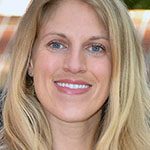 Amber Benedict, visiting assistant professor in special education
Amber Benedict, visiting assistant professor in special education
- Comes from: post doctoral associate research position in special education at UF College of Education.
- Research interests: Improving instruction for students with learning disabilities, including how general and special education teachers’ professional learning opportunities contribute to students’ literacy . . . “I am interested in exploring how teachers’ knowledge and instructional decision-making is related to the enactment of effective instructional practices, and ultimately student achievement.”
- Noteworthy: Won an award from the Council of Exceptional Children’s Division of Research for her dissertation on professional development innovation using lesson study to support teams of general and special education teachers. … Previously taught elementary and middle school students with exceptionalities in Iowa, Arizona and Florida.
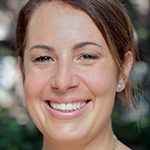 Vivian Gonsalves, visiting clinical assistant professor in special education
Vivian Gonsalves, visiting clinical assistant professor in special education
- Comes from: Served as professor-in-residence for the UF COE’s Advancing the Development of Preservice Teachers (ADePT) program, which focuses on strengthening students’ internship year in the college’s unified elementary education program.
- Research interests: Elementary teacher education, reading instruction, prevention and remediation of reading difficulties, instruction in high-poverty areas and professional development for teachers.
- Noteworthy: Former UF College of Education ProTeach student. … “It was during my UFLI (University of Florida Literacy Initiative) training when I truly developed a passion for working with struggling readers. As a clinical faculty member, I now have the privilege of teaching the UFLI model to preservice teachers enrolled in our teacher education program.”
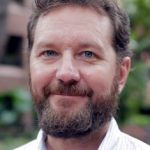 Herman Knopf, research scientist in the Anita Zucker Center for Excellence in Early Childhood Studies
Herman Knopf, research scientist in the Anita Zucker Center for Excellence in Early Childhood Studies
- Comes from: Yvonne & Schuyler Moore Child Development Research Center at the University of South Carolina, Columbia.
- Research interests: Child care accessibility, parent selection of child care, early childhood workforce professional development, and use of administrative data.
- Noteworthy: Returning to UF after having earned bachelor’s (Special Education), masters (Early Childhood Education) and doctorate (Curriculum and Instruction) degrees here. Title of his Ph.D. Dissertation: “Describing Quality Child Care from the Perspective of African-American Mothers.”
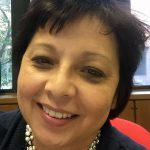 Jo Kozuma, lecturer in ESOL/bilingual education
Jo Kozuma, lecturer in ESOL/bilingual education
- Comes from: University of Florida, where she earned a Ph.D. in curriculum and instruction.
- Research interests: Cross-cultural analysis of how sociolinguistic community structures support the development of bilingual speakers.
- Noteworthy: Previously taught Japanese language and culture as well as English as a second language. … English-to-Japanese book translator in the sports field.
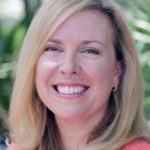
Kelli Peck Parrott, clinical full professor higher education administration
- Comes from: Texas A&M University, where she was clinical professor and director of the master’s program in student affairs administration and human resource development.
- Research interests: Focus on generational issues at work, student affairs administration and student development.
- Noteworthy: Served as a trainer for companies such as Halliburton through the Center for Executive Leadership. … Earned a doctorate in higher education administration at Bowling Green State University with her dissertation “Crime on Campus: Communication Practices, Policies, and Ideal Practices of Campus Law Enforcement Officers and Campus Judicial Officers.”
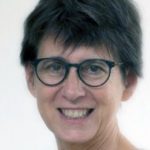
Anne Seraphine, clinical assistant professor in research and evaluation methodology and coordinator of a new master of arts in education degree in Program Evaluation for Educational Environments.
- Comes from: full-time adjunct lecturer in the college’s research and evaluation methodology program.
- Research interests: How to best train evaluators to be culturally responsive, the intersection of exemplary teaching of evaluation and the challenges of online delivery, and statistical and psychometric procedures when applied to evaluation applications.
- Noteworthy: Helped develop the new REM master’s degree by evaluating professional literature and standards and surveying evaluation programs at institutions comparable to the University of Florida . . . “As a result, with input from the REM faculty, I was able to select and build a sequence of courses for the new curriculum that should provide students with an exemplary, theory-based program in evaluation.” . . . She proposed four new courses; the university approval process is nearly complete for the program major and the courses.
Writer: Charles Boisseau, 352-273-4449
UF College of Education ranked in top 10 by USA Today

The University of Florida College of Education rates No. 9 among the nation’s best undergraduate teacher education colleges, according to a ranking published today (Sept. 8) by USA Today.
The 2017 survey for the top colleges nationwide was released by USA Today and College Factual, a Troy, N.Y.-based education technology company that provides the data used in the national newspaper’s third annual ranking of the top U.S. universities.
“We are delighted to have the accomplishments of our College of Education faculty, and staff reflected in these highly favorable rankings,” said Glenn Good, dean of the college. “They have been working with creativity, commitment and passion to provide the best learning experiences for our students.”
UF was Florida’s highest ranked education college in the survey.
College Factual surveyed 1,387 four-year U.S. universities and 449 colleges of education to come up with its rankings.
Compared with similar surveys, College Factual says its rankings are focused on outcomes, such as starting salary and student loan default rates, rather than inputs, such as acceptance rates. All told, the rankings are based on 10 metrics, which also include the percentage of students at the school who are studying a specific major, post-graduation resources, accreditation and even sports and campus lifestyles.
Specifically regarding pay results, College Factual gets its data from Seattle-based PayScale Inc., which says it has the world’s largest database of salary profiles, and from the Department of Education’s Integrated Postsecondary Education Data System (IPEDS), to provide an estimate average salaries for graduates.
In addition to being listed in the top 10 overall, UF’s College of Education ranked high in specific sub-categories: Teacher Education and Development, Specific Subjects – Overall Best (No. 4) and Special Education (No. 11).
The complete rankings of education colleges are available on the College Factual website. The rankings of other academic specialty areas in education and other disciplines will appear in future issues of USA Today.
The USA Today/College Factual survey comes after U.S. News & Reports in March ranked the UF college No. 20 among public institutions in its 2017 Best Graduate Education Schools survey.
Last year, U.S. News rated the College of Education’s online graduate education program No. 1 in the nation. The college also received the nation’s highest score for online student admissions selectivity, recognized as an indicator of high-quality student enrollment.
Writer: Charles Boisseau, (352) 273-4449
Media Liaison: Larry Lansford, director of News and Communications, (352) 273-4137
Early Learning Florida program garners top international accreditation
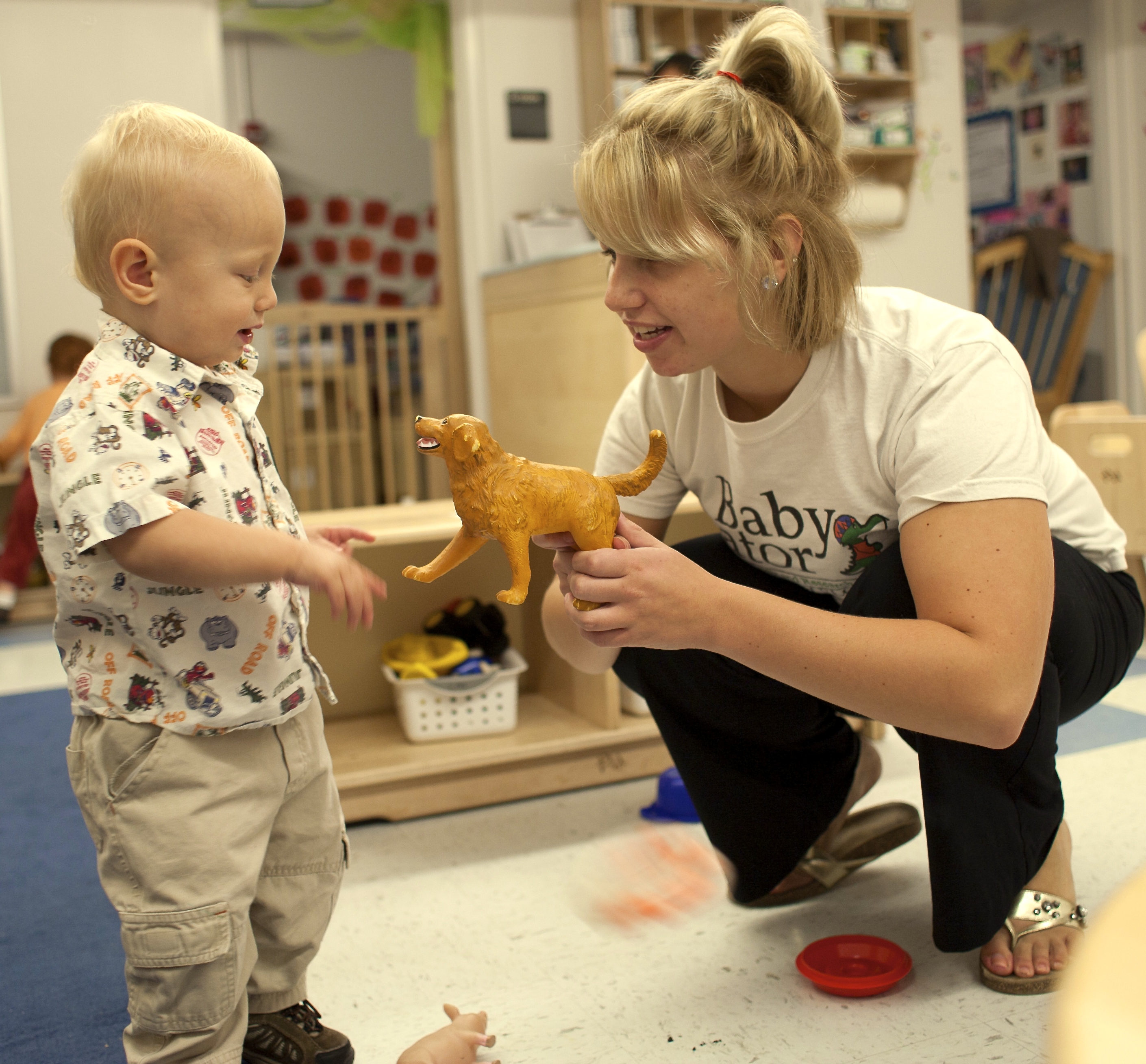
A toddler and a preschool teacher at Baby Gator Child Development Center.
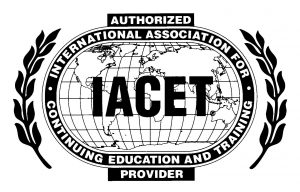
The world’s primary continuing education standards organization has endorsed Early Learning Florida, the UF College of Education’s professional development program for early childhood teachers and caregivers.
The International Association for Continuing Education and Training (or IACET) said it accredited Early Learning Florida for its wide array of high-quality, interactive courses designed to improve the skills of the tens of thousands of Florida professionals who work with infants, toddlers and preschoolers.
By earning continuing education credits (CEUs), early childhood educators can become credentialed in child development and advance their careers by gaining college credits to earn associate or bachelor’s degrees in early learning, said Lara Glaser, operations manager for Early Learning Florida.
“This opens the door for early learning teachers in Florida to further their careers by taking our coursework,” she said.
Early Learning Florida was launched in 2014 by Lastinger Center for Learning, the college’s education innovation hub, to fill a dire need for a cost-effective professional development program for early childhood professionals. The program has received $5 million funding from the state of Florida’s Office of Early Learning and private philanthropies.
The interactive courses are free and offered online 24 hours a day, seven days a week. Certified coaches also provide one-on-one coaching sessions in the participants’ classrooms and family childcare homes.
Reston, Virginia-based IACET is a nonprofit association that accredits quality continuing education and training programs. IACET examiners made a site visit and reviewed Early Learning Florida’s policies, procedures and classes to ensure Early Learning Florida adhered to the best practices of instructional design and delivered solid learning outcomes.
“Early Learning Florida joins nearly 600 organizations around the globe that have had their programs audited by third-party continuing education experts to ensure the highest possible standards are met,” said Lori Schnaider, president of IACET.
This year, Early Learning Florida’s goal is to enroll 4,500 practitioners, a more than 50 percent increase from nearly 3,000 educators last year. That would mean more than 10 percent of the state’s 55,000 early learning educators would have completed the program within two years.
Source: Lara Glaser, 352-473-273-4138
Writer: Charles Boisseau, 352-273-4449
International group installs COE professor as president-elect
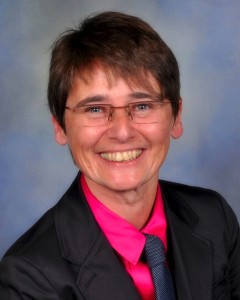 The world’s largest organization of educators committed to advancing English language teaching for non-English speaking students has installed a UF College of Education professor and school director as its president-elect.
The world’s largest organization of educators committed to advancing English language teaching for non-English speaking students has installed a UF College of Education professor and school director as its president-elect.
Ester de Jong, professor of ESOL/bilingual education and director of the college’s School of Teaching and Learning, has assumed the penultimate leadership post for TESOL (Teachers of English to Speakers of Other Languages) International Association and is on track to become the group’s president at the TESOL convention in Seattle in March 2017.
TESOL is a professional community of more than 12,500 members—educators, researchers, administrators and students—representing 156 countries.
“Teaching English to English learners involves many complex issues, with equity and access, technology use and multilingualism playing important roles,” de Jong said. “TESOL is in a unique position to advocate for professionalism in English teaching around the world that is responsive to these global trends.”
De Jong said she values the personal and professional opportunity her leadership role in TESOL offers as a forum for shaping and sharing the group’s important message.
“One of my goals is to raise awareness of the multilingual realities in which English teaching and learning takes place and how it contributes to developing bilingual multilingual competence for speakers from diverse backgrounds,” she said.
In addition to her UF appointment as STL director, de Jong continues to be involved in teaching and research projects related to language policy, bilingual education and mainstream teacher preparation for bilingual learners. In 2013 she received the Award for Excellence in Research on Bilingual Education from the National Association of Two-Way and Dual Language Education. She is widely published in peer-reviewed academic journals on bilingual and language education and policy and has published a book titled “Foundations of Multilingualism in Education: From Principles to Practice,” which focuses on working with multilingual children in K-12 schools.
De Jong also was the lead investigator on a recently completed, seven-year study, funded by the U.S. Department of Education, to assess and advance the teaching of English language learners in Florida’s public schools. She is currently a co-principal investigator on a Florida Department of Education grant involving the creation of a Center of Excellence in Elementary Teacher Preparation at UF’s College of Education.
De Jong has an Ed.D. in literacy, language and cultural studies from Boston University and joined the UF education faculty in 2001.
SOURCE: Ester de Jong, 352-273-4227 ; edejong@coe.ufl.edu
WRITER: Larry Lansford, communications director, UF College of Education; 352-273-4137; llansford@coe.ufl.edu
UF Foundation selects education professor for research award
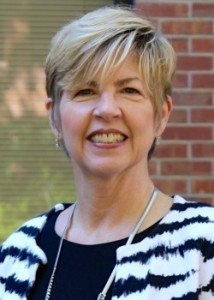
Mary Brownell
The University of Florida Foundation has selected education professor Mary Brownell to receive one of just two grants given annually to university faculty members to advance their critical research projects.
Brownell, a leading scholar and policy expert in special education and teacher preparation, said the $25,000 UF Foundation Term Professorship Award would allow her to develop ways of improving the practices of new teachers and interns, especially for teaching students with disabilities.
UF created the special three-year award in 2013 to support Florida’s overall goal of becoming a preeminent global university by addressing complex societal issues. It is given annually to two research professors.
Brownell said the award would help her work on two related projects.
First, she and her research assistants will develop a digital assessment tool to allow faculty members to better evaluate the learning opportunities education students have when they work as teaching assistants in K-12 schools.
“The problem is that we assume school-based experiences improve teaching. Yet, we really do not know what it is about these that make them effective,” Brownell said. “If we are going to improve teaching, we need to better understand the aspects that work best.
“With this assessment tool you’ll be able to examine the best practices and link those back to teacher and student performance.”
Secondly, she wants to work with education technology colleagues to tap virtual technology in a fresh way to improve teacher practice. This would involve the use of video and simulations of specific practices of effective teachers.
She said such tools are underused in the education field though they are becoming widespread in training students in other professions, such as medicine, nursing and information sciences.
Brownell said she felt honored to receive the highly competitive award, for which she was recommended by the College of Education’s research advisory committee. But perhaps just importantly her selection shines a light on the College of Education.
“Education sometimes doesn’t get the attention and respect that it deserves, not only nationally but locally,” Brownell said. “Putting a spotlight on the college could be the nicest part of the award.”
Brownell joined the University of Florida faculty in 1990 and has a lengthy list of accomplishments, including publishing more than 100 scholarly works and securing $42 million in federal grants to fund education research. She directs the college’s CEEDAR Center to improve the preparation of teachers and leaders working with students with disabilities. It was launched with a record $25 million grant from the U.S. Department of Education. CEEDAR is short for Collaboration for Effective Educator Development, Accountability and Reform.
Source: Mary Brownell, 352-273-4261
Writer: Charles Boisseau, 352-273-4449
COE doctoral student honored for ‘teaching tolerance’
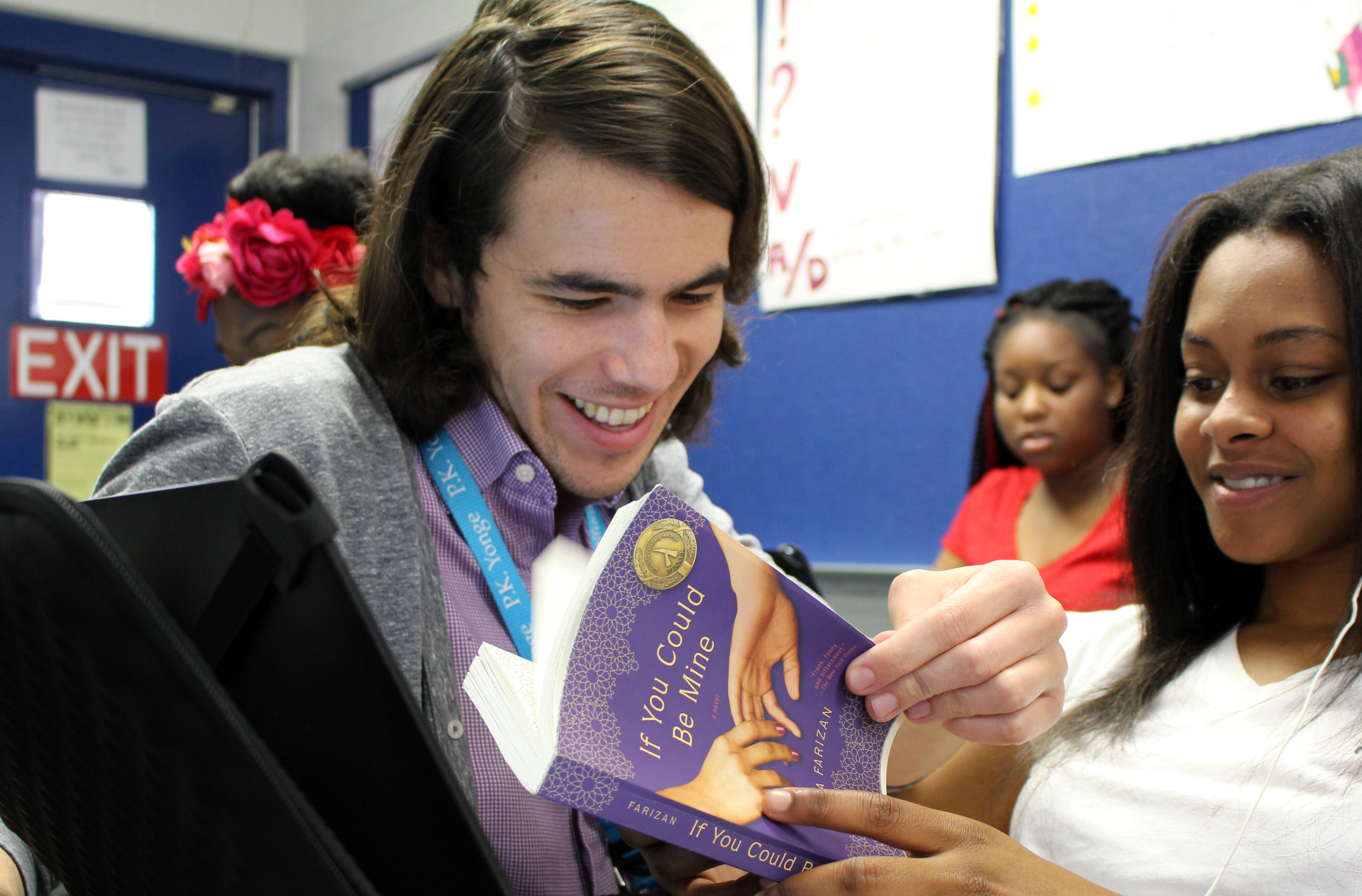
Cody Miller and one of his ninth-grade English students.
Ninth-grade students at P.K. Yonge Developmental Research School are starting the school year today in the classroom of a language arts teacher who has recently gained state and national attention for his effective instructional methods.
Cody Miller, 27, who is in his fourth year teaching ninth grade English language arts, reaches far and wide for inspiration to teach writing and literature to students — and it is paying off.
Miller was one of five U.S. educators honored for excellence by the Southern Poverty Law Center at a July ceremony in Montgomery, Alabama. The center’s Teaching Tolerance project says it selects K-12 teachers who excel at reducing prejudice and supporting equitable experiences among students for the $2,500 biennial award.
Miller also was among a select group of Florida instructors ranked by Florida Department of Education for having the highest impact on the academic growth of their students during the past three years.
In addition to teaching high schoolers, Miller is pursuing a doctorate in curriculum and instruction with an emphasis in English education from UF College of Education.
In an interview, Miller talked about his teaching philosophy and the methods he uses to engage students in literature and language arts.
“Helping students become both writers and readers and understanding that literacy and literature is a way for them to gain autonomy and power in society really drives my English language arts curriculum,” Miller says.
He credits Paulo Freire, an influential Brazilian educator and thinker, for being a big influence. Freire emphasized dialogue with students and concern for the oppressed.
Miller says students aren’t empty vessels, that education is a relationship between teacher and students as opposed to a “banking model” in which the educator makes deposits into the mind of the student.
Educator Rudine Sims Bishop, a professor of emeritus at Ohio State University, who pioneered what she called a “windows and mirrors” concept to children’s literature, also has influenced Miller.
“Students should be able to have literature and poetry and narratives that act as mirrors so they can see themselves and windows so they can see other people’s experiences,” Miller says.
He tries to set this foundation from the first day of class when students exchange personal letters with him about their learning experiences and later as they “co-create” the curriculum for the class.
In addition to classics such as “Romeo & Juliet,” Miller assigns texts like “If You Could Be Mine” by Sarah Farizan, an Iranian-American who writes about a teenage lesbian in Tehran, where homosexuality can be punished by death. Such books inevitably become a rich source of dialogue and study among students and often gives them the courage to tell their own stories in and out of the classroom, Miller says.
In a recent video about Miller, several of his teenage students were asked to describe him in one word. Among the responses: “woke” (meaning aware of injustices), “intelligent” and “decolonial.”
Miller co-sponsors the “De-colonizing Club,” a lunchtime discussion group open to all students to explore globalization and how colonialism and the dominant U.S. and Western culture has influenced their identities. He also leads school-wide professional development on creating inclusive spaces and curriculum for LGBTQ students.
After he completes his doctorate degree, expected in 2009, Miller wants transition to a career as a professor of English education. “I would eventually like to work with future teachers and think about how I can broaden my sphere of influence,” he says.
Source: Cody Miller, 352-392-1554
Writer: Charles Boisseau, 352-273-4449
School psychology professor wins second Mensa research award
UF school psychology Professor John Kranzler has received the 2016 Award for Excellence in Research from Mensa International Ltd.
UF awarded $10M to personalize online math learning
The UF College of Education is assembling top faculty researchers from multiple fields to seek solutions in two critical areas of 21st century education – personalizing online math instruction and adapting educational technology for students with visual impairments.
The studies are funded by two grants, worth more than $10 million combined, from the Institute of Education Sciences, the research arm of the U.S. Department of Education.
Massive data mining for personalized learning
Nearly $9 million of the grant money supports a new project called Precision Education: Virtual Learning Lab, which bring together top experts in informatics, math education and professional development for teachers. Their charge is to advance a new approach for exploring massive sets of student data to update and personalize virtual instruction for math students.
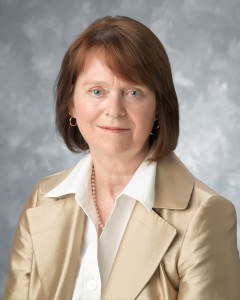
Carole Beal
“With the increased use of computers in education, the large-scale mining of existing education data represents a big new opportunity for computers to help teachers adapt their practice for today’s digltal world and help their students to improve their virtual learning,” said UF education technology Professor Carole R. Beal, the principal investigator of both studies.
The new Virtual Learning Lab comprises faculty researchers at UF and the University of Notre Dame, and experts from Study Edge, a Gainesville-based online tutoring company.
Over the next five years, the researchers will conduct studies in the emerging discipline known as precision education, which uses education data from prior students—such as standardized test scores, personal traits, teaching methods used and school administrative records—to personalize the learning experience for future students.
No more one-size-fits-all lesson plans geared to some “statistically average” student profile.
The researchers will focus on online or virtual learners, relying on the hot, new education technology of “big data” learning analysis. Their approach has them using powerful “supercomputers” to rapidly scrutinize the massive education data, plus figures from students’ use of interactive or group learning tools.
“Our grand challenge is to improve the achievement of struggling online students,” said Beal, who was recruited from the University of Arizona in 2014 to head the new UF Online Learning Institute. “We will design new teacher development programs on the use of learning analytics and personalizing instruction, and how to track student progress when every student is doing something unique.”
Researchers at the Virtual Learning Lab will develop and test their personalized model of precision education on a popular online tutoring tool called Algebra Nation, which the UF Lastinger Center for Learning launched in 2013 in tandem with Study Edge. Algebra Nation has since been used by more than 3,000 teachers and 200,000 math students from all 67 Florida school districts—mostly ninth graders gearing up for the mandatory end-of-course exam in algebra 1.
The researchers delight at the wealth of revealing learning data the Algebra Nation students and program are generating. Near the end of the study, researchers will compare test results of students using the updated and personalized version of Algebra Nation with the scores of students who used the regular version.
Beal said the Virtual Learning Lab also will serve as a national hub for researchers nationwide—forming a network for sharing findings and collaborating on new efforts to advance the fledgling field of virtual precision education and personalized learning.
“Our findings in the Virtual Learning Lab project will serve as a national model for a new approach to developing online learning systems,” she said.
The project’s co-principal investigator is Walter Leite, UF professor of research and evaluation methodologies (REM) with expertise in big-data mining and learning analysis. Other College of Education faculty researchers involved are: Corrine Huggins-Manley (REM), and Don Pemberton and Philip Poekert from the college’s Lastinger Center for Learning.
Two other participating UF faculty scholars are: George Michailidis, director of the UF Informatics Institute; and Juan Gilbert, chairman of computer and information sciences and engineering, and a pioneer in the field of human-centered computing.
Other key team members are psychology and computer science professor Sidney D’Mello of the University of Notre Dame and online tutoring specialist Ethan Fieldman of Study Edge.
Helping students with sight impairments solve online math problems with graphics
The theme of personalized online learning carries over to Beal’s second federal grant, a three-year, $1.4 million project to help solve the unique challenges that blind and visually impaired students must overcome in learning online.
Think about it: How can students who can’t see the images on their computer screen solve algebra or geometry problems filled with line, bar and circle graphs, figures, geometric shapes and maps?
Beal sought solutions to help these students for several years while at Arizona, and she is expanding her studies now with her new UF colleagues. She said one of her ongoing research interests is to explore how technology can make online learning more accessible to students with special needs.
“In my investigations, I have found that students who appear disengaged in the traditional classroom are often among the most active learners in the online learning setting,” she said.

Nicholas Gage
Beal has assembled a research team with colleagues from both Arizona and Florida to explore how technology can make online learning more accessible to students with special needs. They are Nicholas Gage from UF’s special education program as co-principal investigator, and, from Arizona, Sunggye Hong and L. Penny Rosenblum, both education researchers in disability and psycho-educational studies.
The researchers will develop and test an iPad-based instructional system to train students with visual impairments to locate and decipher targeted information in math graphics problems. The system includes audio, print and braille cues in accompanying books to point users to targeted graphics and word problems.
Beal said they plan to recruit up to 150 middle and high school students with visual impairments for the project from regular schools and specialized residential programs in Florida, Arizona and other states.
“Some of our students will be from regular schools and receiving special education services, while others attend specialized residential programs such as the Florida School for the Deaf and Blind in St. Augustine,” Beal said.
Dean Glenn Good of the UF College of Education called the federal grants awarded to Beal’s research teams “a major accomplishment in light of how extremely competitive it is to win major awards in education research.”
“The big winners from these projects,” Good said, “will be the struggling students who will benefit from the enhanced learning tools and teaching strategies that will help them succeed in their technology-based learning activities.”
SOURCE: Carole R. Beal, 352-273-4178; crbeal@coe.ufl.edu
WRITER: Larry Lansford, communications director, UF College of Education; 352-273-4137; llansford@coe.ufl.edu
20 states join UF’s sweeping reform effort to boost teaching of students with disabilities
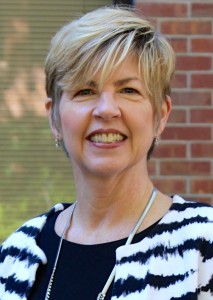
Mary Brownell
The recent addition of five new states rounds out a 20-state roster for a federally funded effort, led by the University of Florida, to help states vastly improve the effectiveness of teachers and public school principals who serve students with disabilities.
Supported by $25 million from the U.S. Department of Education, the UF College of Education has created a national center that is in the midst of a five-year, project to lead major reforms in policy and educator preparation. Their mission: to help states increase academic success for students with disabilities by improving the training and practices of their teachers and school leaders.
A team of faculty scholars from UF’s nationally ranked special education program heads the CEEDAR Center, based at the College of Education. CEEDAR is short for Collaboration for Effective Educator Development, Accountability and Reform.
Guidelines to meet needs of all students
The UF CEEDAR Center’s reach and scope extends beyond its 20 member states. Center leaders hope teaching strategies and standards proven successful in its federally supported project will be considered for adoption by all states.
Last year, the CEEDAR team joined forces with the Council of Chief State School Officers to distribute a nationwide report on “clear policy actions” and guidelines that education department leaders in every state can take to meet the needs of all their students, especially those with disabilities.
The CEEDAR Center was charged to partner with education leaders, groups and agencies, and university teacher prep programs from five states each year, from 2013 through 2016.
The latest and final five states to join—the “class of 2016”—are Kentucky, Mississippi, Colorado, Nevada and Rhode Island.
“We are thrilled to be part of the cutting-edge CEEDAR consortium and the technical assistance it offers,” said Ann Elisabeth Larson, dean of education and human development at the University of Kentucky. “Thls is an opportunity for the state of Kentucky to ensure that our teachers and school leaders are well prepared to provide the highest-quality instruction for all learners.”
Florida, the CEEDAR Center’s home state, was one of the first five states to join in the first-year cycle, along with California, Connecticut, Illinois and South Dakota. Year Two in 2014 saw Georgia, Montana, New Hampsire, Ohio and Utah come in. Last year, Arizona, Michigan, Missouri, Oregon and Tennessee were added.
“It is our intention that the 20 partnering state teams will benefit from the successes and lessons learned from each of the five-state cohorts before them,” said CEEDAR Center Director Mary Brownell, a UF special education professor. “The state teams will strengthen and initiate reform efforts to significantly improve the preparation, licensing and evaluation of teachers and administrators who educate students with disabilities, from kindergarten through high school.”
Brownell said between 60 to 80 percent of students with disabilities spend time in general education classrooms, underlying the need to improve teaching and leadership in all schools.
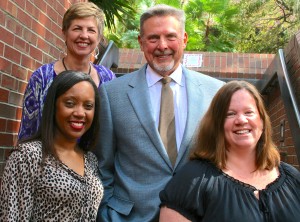
The CEEDAR leadership team (clockwise from bottom left): Erica McCray, Mary Brownell, Paul Sindelar, Meg Kamman (center coordinator)
Brownell’s co-directors of CEEDAR are fellow UF special education professors Paul Sindelar and Erica McCray.
Each state CEEDAR team comprises general and special education faculty experts and administrators from state universities and teacher prep programs, and state education agency leaders and regulatory officials. The teams each have a designated leader and facilitator chosen from one of four participating national groups—the UF CEEDAR Center, the American Institutes for Research, the Council of Chief State School Officers, and the University of Kansas.
CEEDAR faculty and staff used a comprehensive vetting process to select the 20 partnering states, based on their needs and goals, level of commitment and engagement, collaborative spirit, level of support from state education officials, and other factors.
“Each state has their unique needs and solutions for raising the standard of teacher and principal preparation to advance inclusive education for students with disabilities,” Brownell said. “Connections and communication among the network of states and with the CEEDAR team are crucial to developing an effective, comprehensive course of action for each state.”
She said the CEEDAR strategy places heightened emphasis on exposing all students to high-quality instruction in reading, writing and mathematics. Instruction is based on two teaching frameworks that provide increasing levels of academic and behavioral support to any students who need it.
Brownell said educators in the 20 CEEDAR states gain access to a host of resources, including the consulting services of the CEEDAR faculty and staff and the center’s partnering support organizations. Those include the American Association of Colleges for Teacher Education, the Council for Exceptional Children, the Council for the Accreditation for Educator Preparation, the National Association of State Directors of Special Education and the Association for Persons with Severe Handicaps.
CEEDAR also stages webinars and workshops and has created a website with a Facebook-style “wall” for member-networking and sharing ideas. The site also offers numerous multi-media resources to help state teams bolster their knowledge of best teaching practices, teacher prep regulations, program licensure requirements, and other pertinent topics.
Brownell said many states are already developing detailed action plans, strengthening collaborations between state education interests, expanding professional development programs for teachers, redesigning their teacher prep programs, and enacting new standards so all teachers and principals can work successfully with students with special needs.
With 20 states enrolling five at a time at one-year intervals, she said their progress varies from state to state, but “we’re seeing very encouraging results.”
CONTACTS
SOURCE: Mary Brownell, UF College of Education; 352-273-4261
WRITER: Larry Lansford, communications director, UF College of Education; 352-273-4137
New school director Holly Lane embraces tradition of ‘vigorous research’
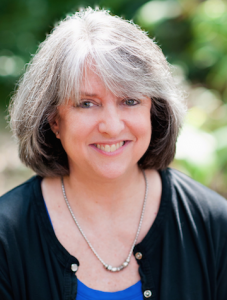
Holly Lane
The University of Florida College of Education has appointed one of its own—associate professor of special education Holly Lane—as the new director of the college’s School of Special Education, School Psychology and Early Childhood Studies (SESPECS).
Lane, an accomplished scholar in literacy education, has served as associate director of the school since 2012 and also coordinates its doctoral program in special education. She succeeds Jean Crockett, who is leaving the post after seven years to resume her teaching and research responsibilities as a professor of special education.
Lane and Crockett will share director duties during the summer transition until Lane assumes sole leadership on Aug. 16.
Lane said her most important role as school director will be to ascertain how she can best support faculty in their work —“and then keep everything else out of their way.”
“We have an exceptional group of scholars and teachers, so supporting their outstanding work will be my top priority. With several retirements coming over the next few years, I also expect new faculty recruitment, development, and mentoring to be a large part of the job,” she said.
Currently, Lane also directs the University of Florida Literacy Initiative (UFLI), a joint program of the College of Education and its affiliated P.K. Yonge Developmental Research School—with several outreach and public-school projects designed to help students who struggle to read or write.
Her research interests include literacy intervention and prevention of reading difficulties through effective early literacy instruction and teacher education. She has published a multitude of peer-reviewed journal articles, book chapters and a book.
In her 22 years at UF, Lane has served as the lead or co-principal investigator on contracts and grants totaling more than $8 million. She and faculty colleague Nicholas Gage were recently awarded a $1.25 million grant from the federal Office of Special Education Programs to support a doctoral leadership training program focusing on special education.
She also leads the evaluation of a intensive reading improvement effort called “Winning Reading Boost,” developed by the college’s Lastinger Center for Learning. The program, funded in March with $400,000 from the Florida Legislature, is being used to help five failing elementary schools in south St. Petersburg improve the reading of their most struggling students.
Lane said sustaining the school’s strong research program is an ongoing priority for SESPECS.
“A vigorous program of funded research allows for more flexibility in what we do as a school,” she said.
Lane also is strong on teaching and academics. In 2014, she was instrumental in helping the college’s dual certification program—in elementary and special education—become one of the first teacher preparation programs in the nation to receive accreditation from the International Dyslexia Association.
She earned her bachelor’s, master’s and doctoral degrees in special education from UF and is previous winner of the college’s Outstanding Graduate Teacher Award. She is the 2016 vice president of the Teacher Education Division of the Council for Exceptional Children and is on track for the group’s presidency in 2018.
Lane taught special education in public schools for eight years in three North Florida counties before joining UF’s education faculty in 1994.
Her predecessor as school director, Jean Crockett, has headed SESPECS for the past seven years.
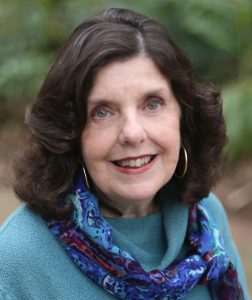
Jean Crockett
CROCKETT’S TENURE AS DIRECTOR NOTED FOR MILESTONES
During Crockett’s tenure:
- Two major centers for research and professional development were established: the interdisciplinary Anita Zucker Center for Excellence in Early Childhood Studies, and CEEDAR, the Collaboration for Effective Educator Development, Accountability and Reform. The latter center was created with the aid of a $25 million federal grant, the largest award in College of Education history;
- Federal research and training funds generated by SESPECS faculty more than tripled from $15 million to $52 million;
- The school added seven faculty members, including two as part of UF’s top-10 Preeminence initiative;
- Crockett’s program, special education, consistently ranked among the top five in its specialty area in the U.S.. News and World Report rankings.
- Seven Ph.D. graduates captured prestigious national dissertation research awards.
Students in UF’s special education program will benefit from Crockett’s return to teaching and research. She is an acknowledged leader in the field, previously serving as president of the Division for Research of the international Council for Exceptional Children from 2007-2011.
Crockett, who has a doctorate in special education from the University of Virginia (1997), has served as special education editor of the Journal of Law and Education for 15 years. She has published five books and multiple book chapters and peer-reviewed journal articles. Since 2008, she has designed and produce the “Doctoral Student Seminars in Special Education Research,” an online seminar series engaging 10 doctoral students scholars selected annually through a national competition sponsored by the Council for Exceptional Children.
“I have had the opportunity to support programs and scholars who are nationally and internationally recognized for the strength of their research and influence on public policy,” Crockett said. “I am confident that Dr. Lane will build on these impressive strengths with innovative and creative leadership. I wish her all the very best.”
CONTACTS
SOURCE: Holly Lane, PhD. UF College of Education; 352-273-4273
SOURCE: Jean Crockett, UF College of Education; 352-273-4292
WRITER: Larry Lansford, communications director, UF College of Education; 352-273-4137
Nepali PhD candidate cited for promoting global engagement
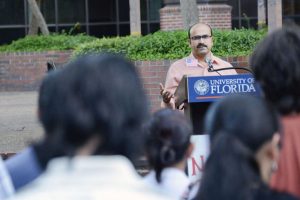
Uttam Gaulee speaks at Turlington Plaza during a vigil to commemorate the earthquake victims in Nepal.
Nepal native Uttam Gaulee has scaled some impressive peaks as he has pursued a doctorate in higher education administration at the UF College of Education.
Earlier this year, he was one of 10 scholars nationwide chosen by the Association of American Colleges and Universities (AACU) to receive the 2016 K. Patricia Cross Future Leaders Award, which recognizes leadership ability in teaching and learning.
The AACU was impressed with Gaulee’s academic work and contributions to the university and the community. He represents “the finest in the new generation of faculty who will be leading higher education in the next decades,” AACU President Carol Geary Schneider wrote in a letter announcing Gaulee’s award.
In May, Gaulee defended his dissertation for a doctorate in Higher Education Administration with a research paper titled “American Students’ Experiences with their International Peers on Campus: Understanding Roadblocks, Enhancing Pathways of Global Engagement.”
He used surveys, interviews and focus groups to uncover roadblocks to improving global engagement among U.S. students. Despite the professed importance of “global competency” in an increasingly interconnected world, he found that most domestic students largely missed opportunities to create rich meaningful relationships with foreign students.
Gaulee’s interest in international learning stems from his personal journey, which began on the other side of the globe, in a valley not far from the world’s tallest mountains.
He grew up as the eldest boy of eight children in a poor family in the small city of Surkhet. His parents were subsistence farmers. No relatives had ever attended college. But Gaulee showed academic promise, became a star student and pursued a college degree while working as a high school English teacher.
In an interview, Gaulee laughed about how naïve he was and how limited his worldview had been.
“In Nepali, my name means the best,” Gaulee said. “And I grew up thinking my family is the best, my country is the best, my language is the best, and so on. It wasn’t until I was able to cross those hills and was exposed to other parts of the world that I learned from people from many different countries.”
In time, he traveled to Nepal’s capital, Kathmandu, where he earned a master’s in education from Tribhuvan University and then to England for an international academic conference. This led him to apply for and receive a Fulbright Scholarship to earn another master’s degree, in education administration and policy studies, at the University of Pittsburgh.
In 2012, Gaulee came to UF, where he has worked closely with Dale Campbell, professor and coordinator of higher education administration, who chaired of his dissertation committee, and with David Miller, his committee co-chair and director of the School of Human Development and Organizational Studies in Education.
Gaulee’s interest in improving global relationships has stretched across UF’s campus. He served as a graduate student senator to the Student Government and spearheaded the effort to rename the campus’ North Lawn the “Global Garden” to serve as a social space where U.S. and international students can gather and learn about each other’s cultures. The space also would display artifacts from around the world, highlighting UF’s commitment to creating a globalized community of scholars and students. The Student Government passed a resolution calling on the university to create the garden.
Miller said he first met Gaulee when he directed a task force that formulated the Learning without Borders: Internationalizing the Gator Nation initiative, a plan designed to improve student engagement in international learning experiences.
“Uttam has shown remarkable passion and leadership in creating opportunities for students to heighten their international awareness,” Miller said. “I expect he will continue to be a driving force in internationalizing student experiences at whatever institute of higher education he ends up in.”
Gaulee is on track to receive his doctorate in August and then he and his wife plan to return to Nepal. He is considering an opportunity to serve as a leader at a new university in his hometown in hopes of improving Nepalese and international higher education at large.
“I’m grateful for all the opportunities I have had to keep learning,” Gaulee said. “I want to help others to do the same, and inspire them to learn about different cultures and societies.”
Source: Uttam Gaulee, 412-805-4745
Writer: Charles Boisseau, news and communications, UF College of Education; 352-273-4449
Acclaimed scholars to participate in UF’s first International Teacher Leadership Conference
GAINESVILLE, Fla. — Globally recognized speakers and researchers are beginning to line up to participate in the University of Florida College of Education’s first international academic conference to explore the crucial role a new generation of “teacher leaders” can have in improving public schools and student achievement.
The International Teacher Leadership Conference, scheduled March 2-3 in Miami, is designed to bring together scholars and practitioners from across Florida, the country and the world to examine the emerging field of teacher leadership.
The conference is being organized by the Lastinger Center for Learning, the College of Education’s R&D arm that spearheads professional development programs to improve teaching and learning in schools and districts across Florida and beyond.
Conference organizers have already begun receiving proposals for research papers and presentations, and they hope to get hundreds by the June 30 submission deadline. They also have confirmed keynote speakers who are widely known for their methods of teaching and scholarship to improve education from the inside out.
Registration for the conference opens Sept. 1. The registration fee is $250. There are 150 scholarships available for teachers who will make presentations at the conference. Scholarships will cover registration fee and lodging.
The formal title of the conference is “Co-constructing a New Vision for Teacher Leadership: A Conversation Among Scholars and Practitioners About Teacher Leadership.”
Among other things, conference goers will discuss what educators mean by teacher leadership, which in the broadest terms refers teachers who lead school improvements in and outside of their classrooms.
“The field still lacks a common conception of the meaning of teacher leaders,” said Philip Poekert, assistant director of the Lastinger Center. “Our hope is the conference will create a framework for conversations and research about effective teacher leadership.”
Many educators increasingly view teacher leadership as a way to drive school improvement and enhance educational outcomes. For many years, scholars have been examining teacher leadership and have explored aspects such as the influence teacher leaders can have and how they can spark student achievement.
“Teacher leadership has become a central part of school reform efforts across the world,” said Tom Dana, associate dean of the UF College of Education. “This is an ideal time to create an exchange of ideas among scholars and practitioners to better understand teacher leadership and to advance the theory and practice in the field.”
The upcoming conference is the latest element of a new UF College of Education program to develop leadership skills among kindergarten-to-high school teachers. In February, the Lastinger Center selected 40 teachers for a new Florida Teacher Leader Fellows program to build a statewide teacher leadership network, improve the quality of classroom teaching and enhance outcomes for students.
The 18-month professional development program will conclude at the Miami conference, where these practicing teacher leaders will interact with education scholars from around the world. Below are confirmed speakers for the conference.
- Gloria Ladson-Billings’ research examines the practices of teachers who are successful in multicultural classrooms. She is the author of critically acclaimed books, including “The Dreamkeepers: Successful Teachers of African American Children.” She holds the Kellner Family Distinguished Chair in Urban Education at the University of Wisconsin-Madison. She also is past president of American Educational Research Association.
- Nancy Fichtman Dana is a best-selling author and expert in the study of practitioner inquiry. She serves as a professor of education in the School of Teaching and Learning at UF’s College of Education. Author of 10 books and over 60 articles, she has coached numerous teachers across the country and abroad in the study of their own teaching and leadership practice.
- John MacBeath is professor emeritus at the University of Cambridge and has authored or co-authored 20 books on education. He serves as director of Leadership for Learning at the Cambridge Network and projects director for the Centre for Commonwealth Education. His research focuses on educational leadership, and he also has worked with schools, education authorities and national governments on school self-evaluation.
See the conference website to learn more about the event, submission guidelines, and other details.
Writer: Charles Boisseau, 352-273-4449
Media Liaison: Larry Lansford, director of News and Communications, 352-273-4137
Q & A with Kara Dawson on closing the ‘digital divide’
It was in 1990 when Kara Dawson gained an insight that was to become the central focus of her research career as a professor of educational technology.
Back then she was teaching 5th, 6th and 7th graders in Virginia Beach, Virginia, at a time when personal computers were just catching on and the invention of the first internet browser was three years away. Dawson attended a workshop on authoring software and began experimenting with using technology in her classroom as a way to engage struggling students.
Fien Professorship boosts Dawson’s research and teaching
Kara Dawson received the College of Education’s Irving and Rose Fien Professorship for 2015-2018.
The professorship provides:
- $15,000 annual research fund
- A half-time research assistant
- $15,000 annual salary supplement
The grant is helping to advance Dawson’s research to promote technology use for all students, including:
- Creating a network of teacher fellows to engage in a study of technology practices in classrooms.
- Coordinating an annual interactive lecture series on the topic to connect a community of interested individuals.
- Supporting doctoral students interested in this area through travel funds and other opportunities.
She soon came to see that educational technologies could improve the learning outcomes for virtually all students. She became her school’s technology integration specialist and in 1994 she returned to college to earn a doctorate in the emerging field of instructional technology from the University of Virginia.
In 1999, she came to the University of Florida’s College of Education and has served as coordinator for the educational technology program and co-developed five advanced degree programs, both online and for the classroom. Her many research projects have included:
- Evaluating the effectiveness of multimedia and mobile apps for dyslexic schoolchildren
- Studying how students with different cognitive profiles learn in multimedia environments
- Investigating a growing “digital divide” whereby middle-school students’ socioeconomic status, gender and ethnic background affect their computer savvy
Last year, the College of Education’s Research Advisory Committee selected Dawson as its Irving and Rose Fien Professor. The three-year post supports veteran faculty members with a track record of successful research aimed at helping at-risk learners in kindergarten-through-high school, mainly at high-poverty schools.
Recently, Dawson took time to discuss her research and the ways incorporating technology and digital tools into traditional classrooms can help all types of learners to flourish. Below are excerpts.
Q: Can technology help students who struggle in traditional schools?
A: Yes, particularly if they are bored, not engaged or struggling to learn content. In schools, we are very limited in how we think about success and the way that students can access content and show what they know. We are also limited in the ways we think about how we teach. These limitations are very real and exist for many reasons often outside the direct control of individual teachers and administrators. But we should keep thinking about how to make school better for all students. Technology is not going to be the end-all-be-all solution, but it can help a lot more than it is helping.
Q: These multimedia tools may get them more engaged?
A: Yes, but we need to figure out how to match technologies to students. And how to match students to technologies. More importantly, students have to be empowered to think about what works for them and to seek alternatives to support their learning now and in the future.
Q: Can you provide examples of how technology can be useful in a classroom?
A: Well, there are a lot of ways technology can be useful in the classroom. I have done quite a bit of work with whole class projects that help students become digital communicators, creators and collaborators. But these uses are different from thinking about how technology can meet individual needs. Two simple, readily available tools are: text-to-speech and speech-to-text apps.
Q: With speech-to-text, you mean there is a web page or a textbook that is enabled to read the text to a student?
A: Yes. For example, for a student struggling to get through a 40-page chapter on U.S. history, text-to-speech could be the difference between accessing the content or not. For another student listening to the chapter may simply be a preference rather than a necessity. But, the types and quality of the technologies available to these students as well as the mindset of their teachers determine whether they can use this feature. Unfortunately, many digital resources created for K-12 education are poorly designed (especially some digital textbooks) and some educators still view reading as the only way to access content. So, the apps may be simple but the context in which they need to be used is quite complex.
Two other examples are speech-to-text and word prediction. I once taught a student who was very articulate but with horrible handwriting. Why not let him communicate his ideas through speech-to-text apps? Why not teach students who struggle with spelling (or really all students) how to use word prediction? Once again, these are simple apps, but the challenge is how do you bring them to the complex world of K-12 education.
Q: Let me take a devil’s advocate position. How do you respond to those who say kids need to learn how to spell, that we shouldn’t have a tool to do it for them?
A: Don’t get me wrong, it’s important that students to learn to spell. But not everyone is going to be good at it and this shouldn’t deter students from being able to communicate their ideas. It shouldn’t continually hinder them from succeeding in school, especially when the goal of a particular learning task may not be focused on spelling.
Q: Is this a big debate in education, one with parents and others, that there is work to do to get this message out?
A: There needs to be some empathy and understanding that being smart is not equivalent to being able to read and write. Think about it, students who struggle with reading, writing and spelling are essentially doomed in a school environment if learning every subject is predicated on these three skills.
Imagine if we gauged how smart you were based whether you could communicate through song. And so everyone who had a good voice and was gifted in that way would shine. Or what if we communicated everything through drawing? So it’s just a very limited way we think about things.
If a student cannot read well (or quickly) and all content is provided through a textbook then she will struggle to learn science and history even if she has innate strengths in other areas, such as the visuospatial strengths needed to succeed in science. Technology can level the playing field for these students.
Q: As far as the Fien Professorship, what do you hope to accomplish over these three years?
A: I really hope to make progress on the ways we can use technology to support the needs of all learners.
I am involved with two studies about how nontraditional college students learn in multimedia environments. We hope to find out how multimedia and online environments can be modified to meet the needs of different kinds of learners and extend our work to K-12 students. One of the most exciting things is that these studies require interdisciplinary collaboration. We need the expertise of special educators, psychologists, computer scientists and neuroscientists. And, I get to work with closely the exceptionally smart colleagues in my own program as well — Albert Ritzhaupt, Pasha Antonenko, Carole Beal and Swapna Kumar.
I also want to make an impact people’s awareness about how technology can meet the needs of all learners. In particular, I plan to work with and learn from teachers who are trying to figure out how to use technology to help their students and with preservice teachers. They have the chance to be leaders in their schools after graduation.
And I’m working with a grassroots group of parents led by Blake Beckett (from P.K. Yonge, the College of Education’s developmental research school) to find ways parents can use technology to support their children.
There are several potential funding sources to further this work and I’m looking forward to see where these ideas and conversations go.
Q: Does it feel daunting with such a big subject? There seems so much to learn.
A: I know I’m not going to solve it; there are so many folks from so many areas trying to make a difference for students. I want to do what I can do and try to make things better and connect with other people who are doing interesting work. I don’t consider it daunting because I’m not naïve enough to think it’s going to ever be completely solved but I want to make progress and be part of the solution.
Source: Kara Dawson, 352-273-4177
Writer: Charles Boisseau, 352-273-4449
4 P.K. Yonge teachers named among Florida’s best ‘high impact teachers’
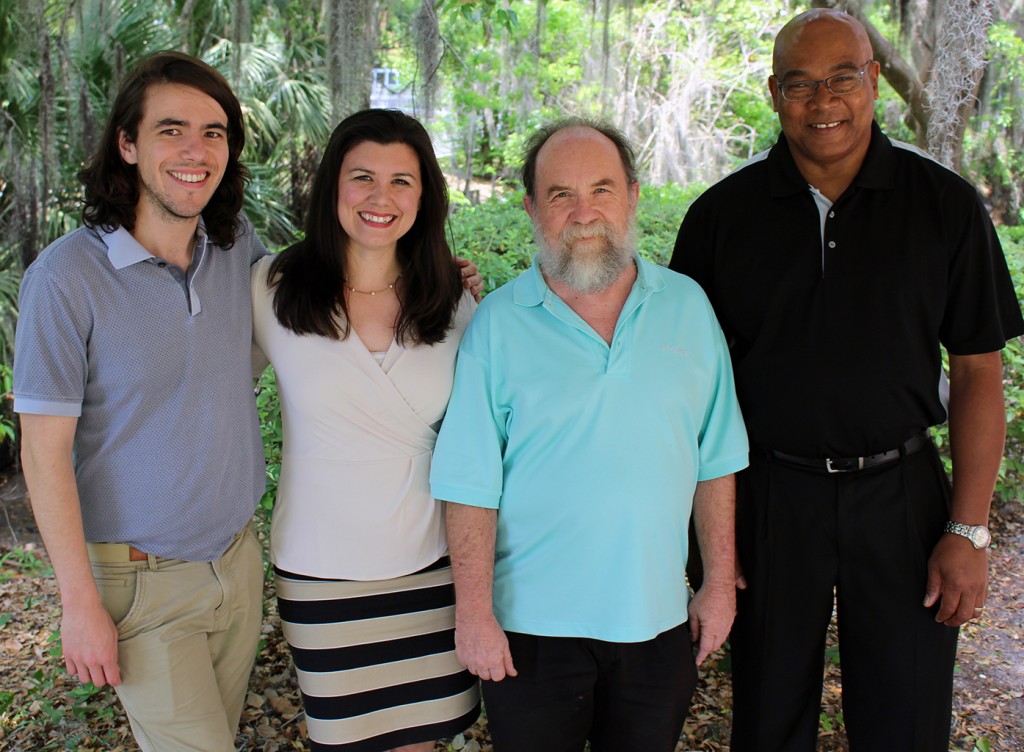
Cody Miller, Kate Yurko, Bill Steffens and George Pringle are among Florida’s “teachers of high impact.”
About VAM
The Florida Department of Education says “high impact teachers” receive the highest valued-added model (VAM) ratings because their students ranked higher than the “reasonable expected score” of similar students in other teachers’ classrooms.
Teachers’ VAM ratings are based on state assessment test scores and a mix of other variables, such as size of classes and whether students are gifted, disabled or learning the English language. Read more about the Florida’s teacher evaluation system.
Four teachers at the University of Florida’s developmental research school are among Florida instructors rated as having the highest impact on the academic growth of their students during the past three years.
The teachers at P.K. Yonge Developmental Research School are Cody Miller, a ninth-grade English teacher; George Pringle, seventh-grade math; Bill Steffens, sixth-grade math; and Kate Yurko, 10th-grade English.
The Florida Department of Education recognized them as “teachers of high impact” based on a statewide ranking of Florida’s middle and high school English and mathematics instructors during the past three academic years. FDOE says less than 10 percent of eligible public school teachers receive the high-impact rating, which is derived from detailed measures and equations, called a valued-added model (VAM), and serves as a key factor schools use to evaluate the performance of teachers.
In honor of National Teacher Appreciation Week, we asked these highly ranked teachers why they are succeeding.
Cody Miller, at age 27 the youngest of the four, says he doesn’t “teach to the test,” a reference to the growing controversy of standardized student testing, which is among the ways the state determines teachers’ VAM rating. With the increased emphasis on tests such as the Florida Standards Assessment exam, teachers are feeling so much pressure to get students ready for the exams that they may neglect to teach skills that go beyond the tests.
“For me, when kids are discussing critically the world around them, that’s a success,” Miller says. “It’s important for students to see how their personal experiences have shaped their views, and to look at someone else and see how their experiences shaped their views.”
Miller has taught for four years, including three years at P.K. Yonge. He considers the high-impact rating as a validation to continue his teaching methods. These include setting a high bar and having students write numerous papers, complete projects, and read and critique eight books each year – ranging from Shakespeare to contemporary memoirs from authors around the world, and graphic novels.
When it comes to taking the standardized tests, Miller says: “My hope is that the test is relatively easy because of all the work I’ve asked them to do. It’s just one item to check off the list. I tell students before they take a test, ‘just knock it out.’”
George Pringle, a seventh-grade math teacher, says he starts each school year with the mindset of improving his teaching practice.
“I’ve gotten better and I’ve learned every year.”
A native of Jamaica, Pringle has taught for 16 years, including eight at P.K. Yonge.
“What I do for one student I do for all students. That is, I treat all students as individuals. My philosophy is for my students to show a willingness to succeed at math.
“Growth is measured differently for all students. State measures are only one way to measure growth. There are many others, such as participating in interactions that take place in the classroom. It’s not just whether they can put numbers on a paper.”
He hopes at the end of each school year “each student can say that was a good experience.”
Bill Steffens, a sixth-grade math teacher, is the most experienced of the four. He has taught for 36 years, including 24 years at P.K. Yonge.
Yet despite his veteran status, he says each school year brings new students and new challenges to solve.
Teachers should try to learn about each student and what methods best motivate them to do their best work, no matter if they are struggling learners or high achievers. It’s one of the puzzles of teaching, but there are many factors that make a teacher a success, he says.
“It’s the way you talk to students, how they respond and work for you. And how to get after them if they don’t. It’s like being a parent. It’s everything.”
He and the other teachers say they had very little understanding of how the complicated VAM scores are determined. But Steffens says he is particularly pleased that the rating shows a consistent high level of teaching impact because it covers a three-year period.
Kate Yurko, a 10th grade English teacher, says she doesn’t rely on standardized tests to gauge her success.
“I’ve thought a lot about how and what I teach. If I focus on the classroom environment I don’t have to worry about the standardized testing. It’s one test on one day.
“I measure students’ success in a different way. Do they enjoying reading? Are they thinking critically? Are they reading books? Helping kids fall in love with words and reading and ideas – that is what’s special.”
After nine years of teaching, including five at P.K. Yonge, she says she has become a better teacher because she is more relaxed and better able to respond to students in real-time instead of always strictly adhering to her curriculum. And it helps having matured and not having a one-dimensional life completely centered on her classroom.
“As you grow in your teaching you get more intuitive. It’s like you get special powers.”
Being at P.K. Yonge, where she says teacher inquiry and research are encouraged, provides a nurturing place to be creative and explore ways to improve her practice.
“We emphasize good teaching, and good teaching brings results.”
Writer: Charles Boisseau, 352-273-4449
Media Liaison: Julie Henderson, 352-392-1554
School finance leader named 2016 Distinguished Alumnus
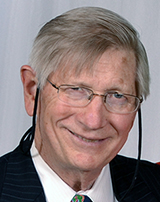
Henry Boekhoff
Henry R. Boekhoff (MEd ’70, PhD ’78, ed. leadership) is widely recognized as a leader in the field of school finance and for his dedication to improve the quality of public education across Florida. Now, after four decades working behind the scenes at many Florida school districts, Boekhoff is in the spotlight.
He is the 2016 winner of the University of Florida College of Education’s Distinguished Alumni Award. UF President Kent Fuchs and education Dean Glenn Good presented the award to Boekhoff Saturday evening at UF’s commencement ceremony for undergraduate degrees at Ben Hill Griffin Stadium.
Boekhoff, 73, said he was surprised to learn he would receive the award considering he has worked mostly out of public view during his long career.
“Most likely I am being given the award because of the sheer longevity of my career, and part of that is the opportunity I have had at a relatively early age to make a mark in the area of school finance,” he said.
Humble beginnings
The honor comes to a man who rose from humble beginnings.
Born in New York City in 1943, Boekhoff grew up in Nassau County, Florida, on a would-be chicken farm. His family was poor, especially after his father died suddenly of a heart attack when Henry was 7 years old.
His mother never remarried and the family didn’t have money for college. After graduating high school, Boekhoff found a job cleaning barnacles from vessels at a shipyard in Jacksonville. Soon enough he enlisted in the Army, where he earned college credits toward an accounting degree. After his discharge, he transferred to the University of Florida and in 1966 earned a bachelor’s in business.
Boekhoff’s career in school finance started by chance not long after he discovered he disliked working as an auditor for an accounting firm. He took a job as director of finance for the Nassau County School District in Fernandina Beach.
He quickly made a name for himself and went on to serve as deputy superintendent and chief financial officer for many of the state’s largest school districts, including Miami-Dade, Palm Beach and Orange counties, where he displayed a passion for education and commitment to schools and communities.
More recently, Boekhoff has served as co-CFO of Florida Virtual School, the country’s first, statewide internet-based public high school and a provider of online K-12 education programs. Boekhoff still works full-time for the virtual school as a special assistant to the chief financial officer.
Life-long learner
Along the way, Boekhoff continued his own education and returned to the University of Florida to receive a master’s in education in 1970 and a doctorate in Education Leadership in 1978.
He said his career has been guided by an understanding that financial considerations are at the heart of creating a well-functioning public school system.
“It’s crass to say in a way, but if you don’t have the funds you can’t keep hold of good employees and if you don’t have good employees the children are going to suffer,” he said.
Often referred to as the “dean” of school finance officers in Florida, Boekhoff helped shape the formulas that determine how funds are distributed to public schools and advocated for fair and equitable school funding. He coined the phrase “adequacy and equity” to highlight the inequitable distribution of education funding caused by the wide disparity in property values between rich and poor counties in Florida.
Boekhoff’s leadership helped Florida craft one of the most equitable education funding formulas in the nation.
“I have always been an idealist,” Boekhoff said, citing Thomas Jefferson as an inspiration. He paraphrased the founding father: “An educated citizenry is a vital requisite for our survival as a free people.”
Writer: Charles Boisseau, Office of News and Communications, UF College of Education; 352-273-4449
Media liasion/Director of News and Communications: Larry Lansford, 352-273-4137
UF honors ed. finance faculty scholar for doctoral mentoring
College of Education Professor R. Craig Wood has received many accolades during his 40-plus year career.
But his latest honor may be the one he cherishes the most: Wood is the College of Education’s latest winner of the UF Faculty Doctoral Mentoring Award.
The honor, given annually by the University of Florida Graduate School, recognizes professors who provide doctoral students with exceptional mentoring as they complete their final dissertations.
“This award is one that probably has the most lasting impact because you are helping to start careers,” Wood said. “When I’m long gone and retired, these scholars will be making names for themselves and making society better.”
More About R. Craig Wood
R. Craig Wood started his career in public schools, working as a classroom teacher, school district business manager, and assistant superintendent for finance for school districts in North Carolina, Wisconsin and Connecticut.
He received a doctorate in education from Virginia Tech and served as a professor of education finance at Purdue University before coming to UF, where he has now spent more than a quarter of century.
Among his accomplishments:
- Authored or co-authored four definitive textbooks with titles such as Money & Schools
- Published 250 articles in academic journals, including the Journal of Education Finance
- Presented at numerous academic conferences
- Served as the lead expert witness in court cases in more than a dozen states in disputes over the manner public funds are distributed to school districts
- Co-founder and president of the year-old National Education Finance Academy. In November, he also was elected president of the Education Law Association.
Wood, a professor of educational administration and policy, is among the nation’s leading scholars in the all-important field of education finance.
Since he joined the UF College of Education’s faculty in 1989, he has served on 51 doctoral committees and chaired to completion the dissertations of 50 doctoral students. Five of his students have won dissertations of the year awards from different academic organizations.
His mentees have gone on to become university professors, a president of a community college, the head of an overseas school and directors of national educational organizations.
“Craig Wood is still my mentor,” a former student, Carlee Escue Simon, wrote the selection committee in a nomination letter. She is now an assistant professor at the University of Cincinnati. “I call him for advice on teaching, research, service and navigating the academic world. My association with Craig opened doors that I never anticipated.”
Another mentee, Jeffrey Maiden, now a professor at Oklahoma University, wrote: “Simply having been his student brings automatic respect from scholars in the field.”
Wood guides doctoral students in the specialty of education finance, an area of growing importance as the public, school boards and elected officials try to balance how to best fund quality public education.
“These are not esoteric or philosophical issues. But they are real,” Wood said. “Education is one of the most costly investments a society can make.”
Wood sets high expectations for his students, and he enjoys helping polish the work of talented young scholars.
Wood said his approach is to work one-on-one with his doctoral students to provide them not only research skills but with writing and speaking opportunities to compete in the national job market.
This kind of work is not usually very visible. So the mentoring award is fresh evidence that Wood is making an impact.
“It’s nice to be recognized for doing your job,” Wood said.
A university-wide, eight-member committee of faculty members, a graduate student, department chairs, college deans, and high-level administrators selects winners for the mentorship honor.
The award provides faculty members $3,000 and an additional $1,000 in department accounts for use in supporting doctoral students.
Writer: Charles Boisseau, 352-273-4137
Media Liaison/Director of News and Communications: Larry Lansford, 352-273-4137
The EduGator110 Challenge. 110 gifts in 10 days. We can do this.
The University of Florida’s College of Education turns 110 years old this fall.
Visit our special anniversary website to read highlights of the College of Education’s 110 years.
To celebrate, the college has planned a year’s worth of activities as we build on our legacy as Florida’s premier training ground for educators and scholars.
- This week: We are launching the EduGator110 Challenge. We challenge our entire EduGator community to join with us to reach our goal of 110 gifts in 10 days, between April 19-28, 2016.
Help make a defining impact on our college. Every gift makes a difference. Make your gift today.
How Outstanding Young Alum saved his teaching career
Meet Jon Mundorf
Winner of UF College of Education’s 2016 Outstanding Young Alumni Award.
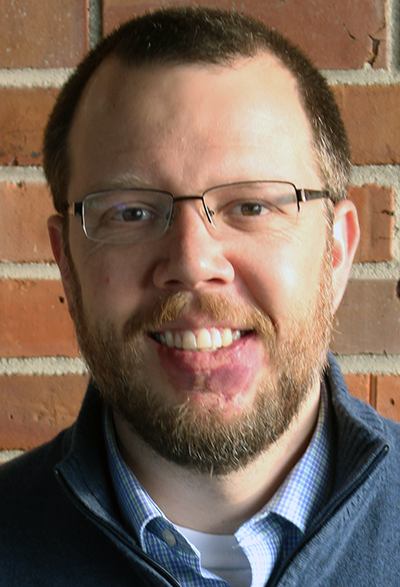
Jon Mundorf was considering quitting the profession after three years of teaching elementary school in Naples, Florida.
He felt frustrated and ineffective despite doing his best to follow the top teaching methods, curriculum, and steps laid out in educator manuals.
“Only a small number of kids really got it when I would teach,” Mundorf says.
Some did not speak English, others had behavior problems or any number of learning disabilities. He came to realize: The standardized teaching methods he was using were ineffective because his students weren’t standardized.
In the summer of 2006, Mundorf decided to look for a better way to teach and give his career a spark.
He found it. He learned new teaching methods that are designed for educators to more effectively reach all their students, and he has gone on to become an award-winning teacher, and an internationally recognized practitioner of teaching to meet the needs of all learners.
Young Alumni Award
Today (April 8), Mundorf, 36, received the UF College of Education’s Outstanding Young Alumni Award, one of 23 Gator alumni across campus who will be honored as leaders in their professions at a ceremony at Emerson Alumni Hall.
Mundorf’s story surely holds lessons for other teachers who are early in their careers, when research shows a high percentage leave the profession.
Mundorf, Ed.D., is a 2014 graduate of UF’s online doctorate in curriculum and instruction program, which is designed to strengthen the skills of practicing educators. His dissertation was about his experience of using universal learning methods to teach a blind student to read in his integrated classroom.
This school year, he joined UF’s P.K. Yonge Developmental Research School, where he teaches seventh grade language arts.
“Dr. Mundorf brings to our classrooms extensive knowledge and many years of experience in leveraging technology and non-tech strategies for supporting the needs of each learner,” P.K. Yonge Director Lynda Hayes says. “He is a dedicated practitioner scholar committed to providing the best possible seventh grade English language arts experience for our diverse students.”
Universal Design for Learning
Mundorf credits his transformation to a decade ago when he entered Harvard Graduate School of Education’s summer institute on universal design for learning (UDL), a partnership with the nonprofit Center for Applied Special Technology (CAST), which now includes Mundorf among its teaching cadre. UDL is a method of using inclusive teaching methods to meet the needs of all learners.
“Upon returning from Harvard, I reinvented myself as a teacher,” Mundorf wrote in his UF dissertation. “Instead of focusing and complaining about the disability I saw in my students, I chose to target the disability in our curriculum. The barriers within the curriculum were minimized because I had developed a student-centered stance for exploring the curriculum with my students.”
Mundorf’s ability to engage an audience with his love of teaching is striking, and he can turn a brief interview into a lively hour-and-half discussion of his teaching philosophy, education research findings and lessons he has learned along the way.
A native of Cuyahoga Falls, Ohio, Mundorf often wears a jacket bearing the logo for Bowling Green State University, where he earned his bachelor’s degree in education. He also has a master’s degree from Florida Gulf Coast University and joined the small ranks of teachers certified by the National Board for Professional Teaching Standards, a nonprofit that aims to advance accomplished teaching for all students.
In an example of his inclusive teaching methods, Mundorf says he provides choices in how a student engages with reading materials, providing audio-visual, text-to-speech, captioning, and, if necessary, Braille formats. His students also have choice in how they express their grasp of the subject, such as writing an essay, making a speech or giving a visual presentation.
This way, students with high-incidence disabilities, such as dyslexia – by some estimates up to 20 percent of students – as well as less common disabilities like blindness are given a better opportunity to succeed.
“We allow students multiple ways to learn, engage, and demonstrate mastery,” Mundorf says. “If I only give them one way, it leaves some out.”
Mundorf is in demand to teach not only students but other educators. He has consulted with schools and organizations on inclusive teaching practices, accessibility, technology integration and other ways to improve teaching and learning. In the fall of 2015, he traveled to Fukuoka, Japan, to provide the keynote speech and lead a workshop on inclusive classroom instruction at the National Conference of the Japanese Academy of Learning Disabilities.
Mundorf says students will succeed in the 21st Century not by memorizing all the prepositions in the English language. They will succeed by becoming expert learners. And the same goes for teachers.
“Teaching can be extremely challenging and there is no one right way to do it,” he says. “You have to constantly work at it to reach all the learners. When you feel like you have figured it all out, the next day things change. Teachers have to be the lead learners in this effort.”
Source: Jon Mundorf, P.K. Yonge Developmental Research School; 352-392-1554
Writer: Charles Boisseau, UF College of Education, news and communications office
COE well represented at world’s largest education research meeting
Some 55 University of Florida College of Education faculty and graduate students were among the 14,000 scholars from around the world who converged on Washington, D.C., April 8-12 for the 2016 Centennial Annual Meeting of the American Educational Research Association to examine critical issues of education research and public policy.
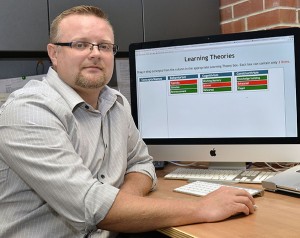
Pasha Antonenko
The AERA meeting, featuring some 2,600 sessions, is the largest gathering of international scholars in the field of education research. More UF education faculty and graduate students, from multiple disciplines, attend AERA’s annual meeting than any other professional gathering. This year’s UF contingent included 25 faculty members and 30 graduate students in education.
The massive AERA gathering is a showcase for groundbreaking, innovative studies in a diverse array of education issues and trends. This year’s conference theme is “Public Scholarship to Educate Diverse Democracies.”
UF presentations included pertinent topics such as:
-
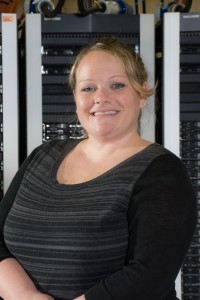
Corrine Huggins-Manley
Educating the captive audience: inmates in state correctional facilities
- Studying the digital divide in Florida schools
- Exploring the outcomes of persistently disciplined students assigned to alternative schools
- How elementary principals relate teacher appraisals to student achievement
- Measuring charter schools’ effect on student achievement
- Self-regulatory intervention for middle schoolers with emotional and behavioral disorders
- Struggles facing novice black female teacher educators
- Aha! Exploring problem-solving insight using electroencephalography?
- Adding technology to help students with visual impairments
- Using instructional coaching to boost preservice teacher development
- How online resources for mathematics support student learning
- Principals as instructional leadership coaches
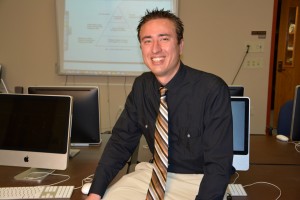
Albert Ritzhaupt
The busiest COE faculty attendees were Pasha Antonenko (education technology), Corinne Huggins-Manley (research and evaluation methods) and Albert Ritzhaupt (ed tech) with each involved in five research presentations. Among doctoral student participants, Zachary Collier (REM) was involved in four presentations, and Stephanie Schroeder (curriculum, teaching, and teacher education) in three.
A complete listing of participating UF education faculty and advanced-degree students, along with their respective presentation topics, is available on the COE website.
HOW LISTING WAS COMPILED: Data was retrieved directly from AERA’s online annual conference schedule and organized alphabetically by participants’ names. Listing does not distinguish between presenters and non-presenting participants and co-investigators. AERA’s complete listing and schedule of conference presentations and participants’ roles is available at www.aera.net. Click on “Events & Meetings” and navigate to the 2016 annual meeting portals.
WRITER: Larry Lansford, director, News & Communications, UF College of Education; 352-273-4137
College of Education Symposium wrap up
College of Education Symposium wrap up: View photo slideshow
The COE student-led Education College Council and Student Alliance of Graduates in Education (SAGE) presented the inaugural COE Research Symposium March 31 at Norman Hall. See photos on our Facebook page.
If you missed the symposium: Watch keynote address
Keynote speaker Benjamin Justice, education historian at Rutgers University, spoke Thursday on “The Hidden Curriculum of Justice: How the American Criminal Justice System Educates, and Miseducates, Citizens.”
If you missed it, watch the keynote: Watch the live stream.
His presentation was part of the inaugural research symposium hosted by two COE student organizations –the Education College Council (ECC) and the Student Alliance of Graduates in Education (SAGE).
Check back later today for photos.
Student groups host inaugural Research Symposium
March 29
Two COE student organizations–the Education College Council (ECC) and the Student Alliance of Graduates in Education (SAGE)–are hosting the college’s inaugural Research Symposium this Thursday, March 31, at Norman Hall. The event is open to all COE students, faculty and staff, and the general public. See details in flier below.
The complete 2016 Research Symposium Program will include workshops, research sessions, roundtable discussions and keynote speaker Benjamin Justice, education historian at Rutgers University. Dr. Justice will speak on “The Hidden Curriculum of Justice: How the American Criminal Justice System Educates, and Miseducates, Citizens.” For more information, contact ECC president Stephanie Schroeder at stephyuf@ufl.edu.
Upgrades to historic Norman Hall being fast-tracked
The University of Florida’s College of Education is moving quickly to finalize plans to renovate its aging, historic home.
The state’s $82.3 billion fiscal budget, signed by Gov. Rick Scott March 18, includes $14.1 million to pay for the first-ever major improvement project in Norman Hall’s 84-year history.
The renovations and repairs include an overhaul of the stately building’s “envelope,” meaning its infrastructure, including new roof, windows, plumbing, electrical system, heating, ventilation and air conditioning, and removal of asbestos and lead paint.
The improvements also include adding many student-centered features, such as configurable classrooms and meeting spaces, more space to boost research capacity, and even installing electrical outlets to support student technology needs.
“We are very grateful to the state for the funding to pay for these badly needed improvements,” said College of Education Dean Glenn Good. “The renovations will make the building more suitable for preparing the educators and educational leaders who will address the educational opportunities and challenges of the future.”
Dean Good and the college staff members will soon meet with the officials of UF’s Planning, Design and Construction Division to finalize the time lines and priorities.
The funds will pay for the first phase of what is estimated to be a $24.4 million project. UF will request the $10.3 million balance in future years.
Importantly, the project will address a backlog of critical deferred building maintenance issues, including damaged electrical wiring because of vermin invasion, failing plumbing, mold in floor tiles and carpet, water damage, and elevators that cannot pass inspection.
The renovation and repairs involve logistical challenges, such as temporarily moving the classrooms and offices to another location during construction.
The college’s staff first began planning improvements to Norman Hall in the 1980s and securing state funding has been one of UF’s capital improvement and maintenance priorities.
The L-shaped red-brick building was built in 1931-1934 as the P.K. Yonge Developmental Research School to closely resemble the university’s original academic buildings constructed starting in 1905.
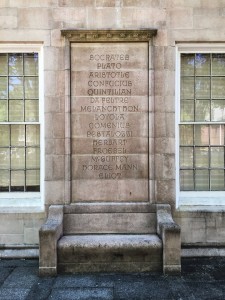
Norman Hall includes embellishments such as the north façade’s monumental plaque honoring the great educators of the past.
Located across Southwest 13th Street from the main campus, the building has a steeply pitched roof punctuated with dormers, decorative brick work and architectural embellishments. These include arched doorways and carvings, such as the north façade’s monumental plaque honoring the great educators of the past, from Plato, Socrates and Aristotle to McGuffy and Froebel.
In 1957, the building was renamed for long-time Education Dean James W. Norman when P.K. Yonge moved to its own campus a few blocks away. In 1989, it was listed on the National Register of Historic Places.
The College of Education is rated among America’s top-ranked education schools. The college has 2,800 students enrolled in 28 undergraduate and graduate academic programs and projects to increase enrollment 20 percent during the next five years.
Sources: Dean Glenn Good, 512-273-4135, Associate Dean Tom Dana, 352-273-4134
Writer: Charles Boisseau, 352-273-4449
40 educators chosen for UF’s new leadership network
GAINESVILLE, Fla. — The University of Florida’s College of Education today named 40 public school educators to a new program to develop leadership skills and share their expertise with teachers across Florida. The selected teachers are the first Florida Teacher Leader Fellows and will participate in an 18-month program designed to build a statewide teacher leadership network, improve the quality of classroom teaching and enhance outcomes for students.
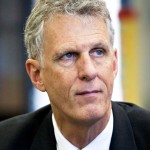
Don Pemberton
“These teachers are all passionate about leading their schools and districts to improve student learning,” said Don Pemberton, director of UF’s Lastinger Center for Learning. The center is the College of Education’s R&D innovation hub that spearheads novel professional development programs to improve teaching and learning.
The idea: Nurture a crop of teachers who can inspire and empower others to better the teaching and learning at their schools, districts and, ultimately, across the state. The Bill and Melinda Gates Foundation invested in this idea to get the program off the ground.
The 40 fellows, selected from 217 applicants, are practicing classroom teachers, school counselors, media specialists and instructional coaches at pre-kindergarten, elementary, middle, and high schools across Florida.
Educators selected for the program said they want to become better teachers and inspire others.
- “By participating in the Florida Teacher Leader Fellowship I hope to improve my teacher leader skills and ignite those skills in the amazing teachers I am surrounded by at Matanzas High School,” said Amanda Kraverotis, an instructional coach in Flagler County.
- “I chose to apply to this fellowship to challenge myself personally and professionally and to grow as a teacher, learner, mentor and leader,” said Adrienne Reeder, a reading teacher at Dr. Edward Whigham Elementary School in Miami. “I hope to gain an adaptive perspective on how to provide meaningful instruction through inspiring leadership.”
- “Since I teach the middle school population, I know that there are specifics about their lives I will never know in detail. I have only a small amount of time to make a difference in their lives, so I better be impactful,” Daryl W. Pauling Sr., a math teacher at Carver Middle School in Delray Beach. “I want to be a part of the transition of working for a better understanding to expand a person’s knowledge to make them better.”
UF’s Lastinger Center created the program in partnership with the Center for Teaching Quality (CTQ), a national nonprofit organization. CTQ will support fellows by facilitating virtual collaborations with project staff and other fellows, measuring the impact of the work they lead, and engaging educators and influencers across the state as their leadership efforts expand.
“There are so many teacher leaders across the state who are seeking to have a greater voice and impact in their schools,” said Barnett Berry, CEO of CTQ. “The goal of this fellowship is to help these leaders share their expert practices across schools and districts.”
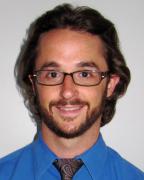
Phil Poekert
The teacher-leader program will formally begin March 1, when the fellows come to Tallahassee for two days to learn about creating a fellowship community and engaging in educational policymaking. In June, the fellows will come to UF’s main campus in Gainesville to launch their personal leadership projects. The fellowship will continue with an international teacher leadership conference in Miami next year.
UF education researchers say they will closely follow the fellows and document the impacts of professional learning on teacher and student growth as a way to continually refine and improve the program.
“Through developing and researching the fellowship, we want to better understand what teacher leadership looks like in schools and districts across the state. And we want to know how to cultivate a group of teacher leaders who, in their support of individual schools and districts, advance the state’s education system for the benefit of Florida’s students,” said Philip Poekert, assistant director of the Lastinger Center.
Below are the 40 educators selected for the inaugural Florida Teacher Leader Fellows program:
|
County and/or District |
School |
Educator |
|
Alachua |
W.W. Irby Elementary |
Lorena Sanchez |
|
Brevard |
Meadowlane Primary |
Sarah Brown |
|
Broward |
District-based Pembroke Pines Charter Elementary Tropical Elementary |
Isabel Nodarse Donald Nicolas Amy DeCelle |
|
Duval |
Paxon |
Mai Keisling |
|
Flagler |
Matanzas High |
Amanda Kraverotis |
|
Florida Virtual |
Florida Virtual School |
Charles Cummings |
|
Hillsborough |
Bloomingdale High |
Heather Hanks |
|
Lake |
Grassy Lake Elementary |
Kelly Dodd |
|
Lee |
Riverdale High Tortuga Preserve Elementary |
Deneen Kozielski Jennifer Grida |
|
Leon |
John G. Riley Elementary |
Bridgette McCloud |
|
Levy |
Yankeetown |
Cara Dunford |
|
Martin |
Crystal Lake Elementary |
Christina Kennard |
|
Miami-Dade |
Charles D. Wyche Jr. Elementary Dr. Edward L. Whigham Elementary Eneida M. Hartner Elementary Gulfstream Elementary Kendale Lakes Elementary Rockway Middle William H. Turner Technical Arts High |
Maria Silva Adrienne Reeder Nicole Fernandez Osmany Hurtado Lianna Saenz Michael Windisch Treesey Weaver |
|
Orange |
Wyndham Lakes Elementary |
Deborah Carmona |
|
Palm Beach |
Carver Community Middle Del Prado Elementary Forest Hill Community High Forest Hill Community High Royal Palm Beach High Suncoast Community High |
Daryl Pauling Tyler Montgomery Jillian Gregory Allison Hammill Daniella Suarez Stephen Kaplan |
|
Sarasota |
Imagine School at North Port Upper Campus |
Tiffany Bailey |
|
Seminole |
District office Lyman High |
Pam Ferrante Martha Ladd |
|
St. Johns |
John A. Crookshank Elementary Timberlin Creek Elementary |
Jacqueline Zahralban Andrea Dieckman |
|
St. Lucie |
Frances K. Sweet Elementary Lincoln Park Academy Palm Pointe Educational Research |
Nardi Routten Makeda-Ione Brome Glenna Sigmon |
|
UF Lab School |
P.K. Yonge Developmental Research |
Jon Mundorf |
|
Volusia |
Deltona High |
Dylan Emerick-Brown |
|
Walton |
Walton High |
Deena Martin |
CONTACTS
Sources:
— Rebekah Cordova, professional development coordinator, (c) 303-246-4331; (w) 352-273-4105
— Don Pemberton, 352-273-4103
— Phil Poekert, 305-586-8665, UF Lastinger Center (Miami office)
Writer: Charles Boisseau, news and communications, UF College of Education, 352-273-4449
UF online graduate education rated best in nation
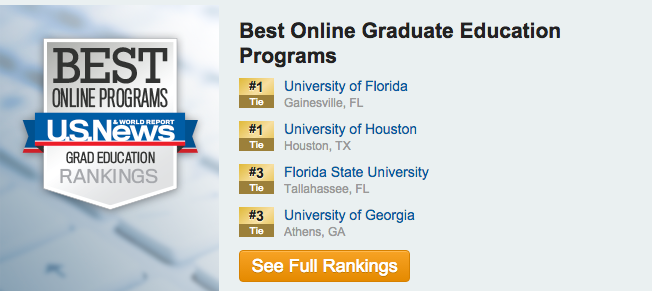
GAINESVILLE, Fla. – The distance education program at the University of Florida College of Education, already recognized for having some of the nation’s best e-learning students, now can stake a claim as America’s best online graduate education degree program overall, according to the latest national rankings announced Jan. 12 by U.S. News and World Report magazine.
UF was tied for first with the University of Houston in the new 2016 rankings of America’s Best Online Graduate Education Programs, improving by 12 spots over last year. For the second year in a row, UF also received the survey’s highest score for “admissions selectivity”—considered an indicator of the high quality of its students.
UF now is the top-ranked education college in Florida and among public education schools in the Southeast in both online and on-campus graduate degree programs. The College of Education also was UF’s highest-rated online program in the survey.
This is the fifth year that U.S. News has numerically ranked online learning programs in higher education. Education is one of seven disciplines at the master’s degree level that were rated. Programs were ranked based on five weighted factors: student engagement (35%), student services and technology (20%), admissions selectivity (15%), faculty credentials and training (15%), and peer reputation (15%).
“Our distance ed courses are designed by top-flight faculty using the latest knowledge about best practices in web-based learning environments,” UF education Associate Dean Tom Dana said. “Our goal is to develop master educators who can lead transformations in practice.”
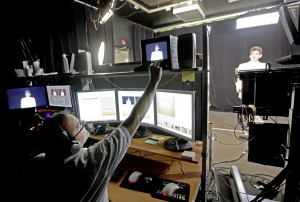
COE online instructors work with the college’s instructional design creative teams to produce high-quality videos, both for on-screen lessons and “virtual field trips” (Photo courtesy of Matt Stamey/The Gainesville Sun)
Dana said a key distinction of the UF online program is its cohort instructional approach, meaning the students start and complete the degree coursework together, which Dana said creates more opportunities for students to interact with each other and with their instructors.
“The cohort model has been shown to increase student retention and the graduation rate,” he said.
Dana has steered the development of the college’s e-learning program since its inception in 2004, when 57 students enrolled in three online graduate courses. In 2015, more than 1,750 students were enrolled in 160 online courses.
The College of Education offers eight Web-based degree programs, geared mainly to working teachers and school administrators seeking additional certifications, career advancement or professional development. The five online graduate education programs considered in the U.S. News rankings were: curriculum and instruction; educational leadership; educational technology; reading, language and literacy; and special education.
“Many of our online instructors are full-time college faculty members and nationally recognized as experts in their field,” Dana said. “All online instructors receive training in the technology and best practices of online learning.”
Many instructors have worked with the college’s instructional design team and digital creative staff to produce high-quality videos, both for on-screen lessons and for “virtual field trips” that allow students to see and hear some of Florida’s most inspiring teachers and school administrators in action and discussing best practices and professional insights.
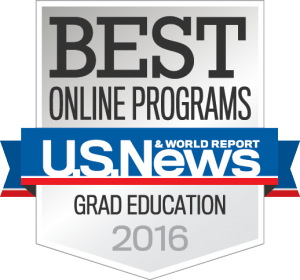 “The videos link to a specific assignment or learning activity,” said Bruce Mousa, coordinator of UF’s educational leadership online degree program. Mousa also has been known to upload videos from his personal computer to provide feedback to individual students.
“The videos link to a specific assignment or learning activity,” said Bruce Mousa, coordinator of UF’s educational leadership online degree program. Mousa also has been known to upload videos from his personal computer to provide feedback to individual students.
Education Professor Sevan Terzian even incorporates some Ken Burns-like production techniques to deliver engaging content in his Education and American Culture online course, such as inserting historical images accompanied by captions and his voice-over narration.
“I wouldn’t be the first to say there is a small element of performance in everything we do,” Terzian said with a smile.
For more information, visit the college’s distance learning website at https://education.ufl.edu/distance-learning/.
The full rankings and rankings data for Best Online Programs in Graduate Education are publicly posted on the U.S. News website at http://www.usnews.com/education/online-education/education.
SOURCE: Tom Dana, associate dean, UF College of Education; tdana@coe.ufl.edu; 352-273-4134
SOURCE: Jason Arnold, associate direct of e-learning, technology and creative services, UF College of Education; jda@coe.ufl.edu; 352-273-4442
WRITER / MEDIA RELATIONS: Larry Lansford, communications director, UF College of Education; llansford@coe.ufl.edu; 352-273-4137
Preaching the power of Teacher Inquiry
‘Inquiring’ minds are finding answers in Nancy Dana’s passion
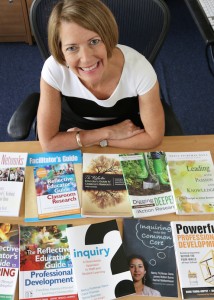
Nancy Dana has published 10 books on teacher inquiry and professional development.
The photocopied sign taped to a cabinet drawer in Professor Nancy Fichtman Dana’s office at the UF College of Education employs just one word to arrive at the heart of the matter: Inquiry.”
Dana is a leading international authority on teacher inquiry – a powerful form of educator professional development that’s helping teachers design and deliver engaging ways to help all students learn to their maximum potential.
“Teacher inquiry is systematic, intentional study by educators of their own practice,” Dana says. “So, rather than research being done to teachers or school leaders, practitioner inquiry empowers teachers and leaders to engage in action research on their own practice, wrapping their professional learning around the learning of students.”
Her influence in the research and growing practice of teacher inquiry is evident in UF’s modernized teacher preparation curriculum, and in the UF Lastinger Center for Learning’s extensive outreach professional learning initiatives and educator coaching programs, which so far have reached over 10,000 teachers. Dana has worked with numerous schools and districts across Florida, the United States and abroad to help them craft professional development programs of inquiry for their teachers, principals and district administrators.
She embraced the inquiry concept while collaborating with a group of teachers and their principal at a Tallahassee elementary school as part of her doctoral dissertation studies during the late 1980s.
“The practice of inquiry was a transformational and empowering experience for all of us at that elementary school,” she says. “Over and over again I’ve seen what an incredibly powerful form of professional development inquiry can be.”
Dana has studied and written about practitioner inquiry for over 20 years, publishing 10 books on the topic, including three best sellers. Her latest book—on Professional Learning Communities and titled, simply, “The PLC Book”—was published in November by Corwin Press.
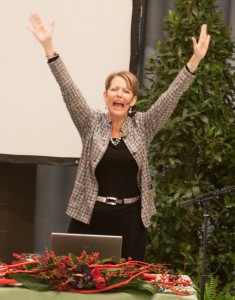
Dana has turned globetrotter of late, leading educator workshops on teacher inquiry and professional learning communities in several countries.
Dana has been racking up the frequent flyer miles of late, traversing the nation and globe making keynote presentations and leading workshops for educators hungry for professional learning models that focus on examining evidence from practice. Over the past few years her work has taken her to China, South Korea, the Netherlands and Belgium. In January 2015 she led a weeklong course on inquiry in Lisbon, Portugal, for education leaders from nine countries in the European Union. Next October she is headed to Estonia.
Born and raised in New York, Dana has a doctorate in elementary education from the Florida State University College of Education, which recently honored Dana with its 2015 Distinguished Alumni Award. She also served on the Penn State University education faculty for 11 years. She arrived at UF in 2003, around the time the UF Lastinger Center for Learning was created as the College of Education’s innovation hub for education reform. Dana immediately identified with the center’s progressive philosophy and objectives and was instrumental in infusing inquiry into the center’s outreach professional development programs for practicing educators.
“I had always been passionate about raising teachers’ voices in educational reform and helping educators improve their practice, and the Lastinger Center was emerging as a place that kept practicing professionals’ voices at the core,” she says.
Lastinger director Don Pemberton describes the center’s emergence and Dana’s arrival at UF as “perfect timing.”
“Nancy’s work is particularly relevant because it takes research-based practices and translates them into helping educators improve the quality of their teaching through an accessible, scientific process,” Pemberton says. “That is a key distinction of practitioner inquiry and Nancy’s scholarship.”
Dana doesn’t focus singularly on inquiry, although her signature focal point seeps into her other interests. She and co-researchers Cynthia Griffin (UF special education) and Stephen Pape (Johns Hopkins mathematics education) secured a $1.5 million grant from the federal Institute of Education Sciences to develop and study an extensive online professional development program for third-through-fifth-grade general and special education teachers focused on the teaching of struggling math learners. Teachers’ engagement in inquiry was the program’s core feature.
She also is deeply involved in the college’s new, professional practice doctoral program in curriculum, teaching and teacher education. The Doctor of Education (Ed.D.) program is an online, on-the-job degree program designed specifically for practicing K-12 educators who aspire to lead change, school improvement and education reform efforts in their schools and districts. As you might expect, the program emphasizes evidence-based self-study and Dana designed a course specifically to introduce these students to the concept of inquiry.
When it comes to practitioner inquiry or “action research,” Dana and others at the College of Education know that they are onto something special – something that’s transforming teacher practice and boosting student achievement.
“Teacher inquiry is a very personal process,” Dana says. “Teachers are engaging in inquiry because they care really deeply about the learners in their classroom, and they desperately want to do anything they can to be successful in the teaching of all learners and to meet their varied needs.”
SOURCE: Nancy Dana, ndana@coe.ufl.edu
WRITER: Larry Lansford, director, News & Communications, UF College of Education, llansford@coe.ufl.edu
Ed. technology researcher lands record five NSF grants
Jan. 26 Update: NSF announces fifth grant, $1.2 million, for Dr. Pasha Antonenko to lead UF team on 3-D paleontology technology project.
GAINESVILLE, Fla. — Pasha Antonenko, an associate professor of educational technology, has set a new standard at the University of Florida College of Education, scoring five research grants from the National Science Foundation — all in the same 2015 funding cycle.
“You don’t expect all of them to hit,” Antonenko said. “You are lucky if one grant proposal is funded because acceptance rates are so low.”
Thomasenia Adams, associate dean of educational research, said five NSF awards sets a single season record for grants awarded to a College of Education faculty researcher.
“Dr. Antonenko has blazed the trail we have not seen before,” Adams said.
The National Science Foundation is an independent federal agency, created by Congress in 1950, that funds nearly one-fourth of all basic research conducted by America’s colleges and universities. It’s the only federal agency that supports all fields of fundamental science and engineering, except for the medical sciences.
Even more impressive than the number of NSF grants Antonenko received may be the variety and importance of the topics to be addressed in the resulting studies.
Antonenko’s five NSF awards total $4.1 million and will fund novel research projects using a wide-range of technologies in learning applications, including 3-D scanners and printers to study prehistoric bones, drones to study construction projects, and computerized simulations to study the human body’s reactions to a wide-range of stimuli.
He specializes in exploring the promise and problems of educational technology, including human-computer interaction and the design of learning environments.
The Ukrainian-born scholar will work with dozens of collaborators across the country, including researchers from fields as varied as construction engineering and paleontology and from institutions from Arizona to Massachusetts, as well as the University of Florida.
Antonenko is principal investigator on three of the NSF grants and co-principal investigator on two, one of which is led by UF’s David Julian, associate professor of biology, and the other by Emily Sessa, UF assistant professor of biology.
Below is a rundown of the NSF projects Antonenko will be working on.
• Creating an evolutionary history of earth’s oldest plants: a $1.8 million, four-year project. With Sessa as principal investigator, the research team is developing a history of the evolution of flagellate plants — the oldest known land-based fauna to ever have existed, such as ferns. Other co-principal investigators are UF biology scholars Gordon Burleigh, Stuart McDaniel and Christine Davis. Antonenko’s role is to lead the development of an online application, named Voyager, to allow university students to explore a massive database in classrooms and promote evidence-based teaching practices. Antonenko will measure the effectiveness of the learning by conducting tests, including using electroencephalograms (EEGs), which measure the electrical activity in the brain of students to determine how well they are learning.
• STEM teaching using 3-D scanners and printers: This three-year, $1.2 million project will allow middle- and high-school students to study and scan bones in three dimensions, and upload them to virtual collections that scientists can access worldwide and reproduce using 3-D printers. Antonenko said the team is seeking to address an ongoing problem in 21st century education: how to integrate STEM (science, technology, engineering and math) lessons across multiple disciplines.
• How community college students learn using multimedia: a three-year,$765,000 effort. The use of multimedia resources in STEM education has undergone remarkable growth in recent years. The problem: Most all research on the effectiveness of these tools has been performed on high-achieving students at elite universities. This study will look at how effective these tools are among more diverse community college students, which now constitute nearly 50 percent of the population of higher education students. Co-principal investigators from UF are education technology faculty researchers Carole Beal (who also heads UF’s new Online Learning Institute) and Kara Dawson, and Andreas Keil, associate professor of psychology.
• Creating an application to teach human physiology: a two-year, $247,129 project. Pre-med and other university students studying human physiology will use a new computer-based tool, called HumMod, to find out how a particular variable will affect a person’s health. For example, if a 50-year-old man were exposed to a certain level of carbon monoxide, how would that affect his cardiovascular, respiratory, neural and other processes? This study, led by UF’s Julian, allows for research of more than 6,000 variables to predict physiological responses.
• Using drones to study construction and engineering projects: This one-year, $58,148, pilot trial will use drones equipped with video cameras so students can view structures that are under construction. It seeks to address the problem in construction engineering and management courses of how to show students the myriad ways to build increasingly complex projects in a variety of scenarios, such as on all manner of construction sites. It’s not practical for students to take field trips to see these projects. “Cyber-Eye” will allow them to view drone-shot videos and establish a case library to see how to tackle real-world construction issues.
With this, as with as all his projects, Antonenko is looking to solve problems by using new ways of teaching and learning.
“In essence, all of the projects are about my core research, which really is understanding learning from different perspectives,” he said.
CONTACTS
SOURCE: Pasha Antonenko, UF College of Education; 352-273-4176; p.antonenko@coe.ufl.edu
WRITER: Charles Boisseau, UF College of Education; 352-273-4449; cboisseau@coe.ufl.edu
MEDIA LIAISON: Larry Lansford, communications director, UF College of Education; 352-273-4137; llansford@coe.ufl.edu
Contact Us
College of Education
140 Norman Hall
PO Box 117040
Gainesville, FL 32611-7044
(352) 392-0726

